Our Services
- Chat with a Vet Online

Sick Pet Care and Diagnostics
- Allergies and Dermatology
- Pet Pain Management
- Orthopedic Examination
- Neurological Examination
- Electrocardiogram (ECG)
- Pet Ultrasound
- Veterinary Diagnostic Imaging
Wellness and Preventative Care
- Wellness Exam
- Puppy and Kitten Wellness
- Nutritional Consultation
- Behavioral Consultation
- Vaccination
- Microchipping
Travel Certificates
- Domestic Travel Certificate
- International Travel Certificate
Surgical Procedures
End-of-life care.
- In-Home Pet Euthanasia
- Quality-of-Life Consultation
Our Locations
- Philadelphia
- Washington, D.C. Area
- Conejo Valley
- Greater Los Angeles
- Orange County
- San Francisco
- How It Works?
- Our Veterinarians
- Referral Program
Pet Health Care Resources
- Pet Health Care
- Pet Nutrition
- Pet Symptoms
- Pet Conditions
- Pet Diseases
- Pet Medications
- Pet Lifestyle
Tools, Calculators & Calendars
- Pet Wellness Tools
- Pet Holidays and Awareness Days
Customer Support
- Help Center
- Code of Conduct

Kitten First Vet Visit: What You Can Expect
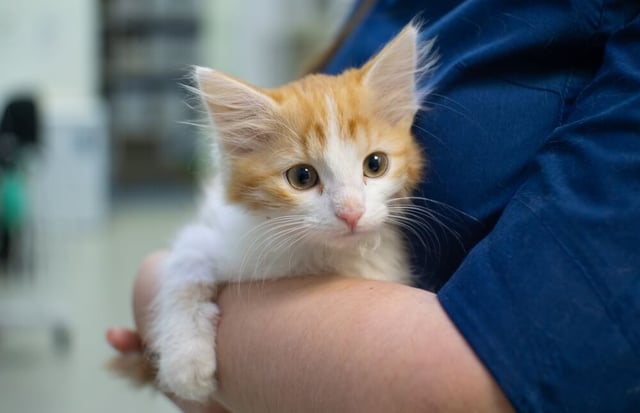
Table of Contents
Bringing home a new kitten is an exciting time, but it's essential to ensure they receive proper veterinary care right from the start. Whether you're a first-time kitten parent or simply looking for a refresher, we will provide you with valuable insights to make vet visits a positive and stress-free experience for both you and your furry friend.
Key Takeaways:
- The first vet visit for your kitten is crucial for their long-term health and building a positive relationship with the veterinarian.
- The visit includes a physical exam, vaccinations, and discussions on important topics.
- Prepare by gathering documents, questions, and familiarizing your kitten with travel or considering in-home visits.
Importance of Your Kitten's First Vet Visit
Scheduling your kitten for their first visit is incredibly important. It sets the stage for their long-term health and happiness. Regular kitten checkups with a vet will help keep them in tip-top shape and catch any potential problems early on. Plus, during that first visit, your kitten gets to meet their veterinarian. Building a relationship with the veterinarian from day one helps your kitten feel safe and comfortable during future visits.
Hassle-Free Puppy and Kitten Wellness Exams
Ensure your puppy or kitten are on the right paw to a healthy, happy life. We bring wellness visits and vaccinations to you!
What Happens During the Kitten's First Vet Visit
During your kitten's first vet visit, several important procedures and discussions will typically take place. Here's a breakdown of what you can expect:
Physical examination and health assessment
During your kitten’s first visit, the veterinarian will conduct a physical examination to include checking weight and vital signs (temperature, heart rate, and respiratory rate). The veterinarian will also examine the eyes, ears, mouth, skin, chest, abdomen, and joints for any signs of abnormalities.
Administering essential vaccinations and protective measures
During this visit, your kitten will also receive important vaccinations and preventive treatments to safeguard them against common diseases like feline distemper, calicivirus, herpesvirus, and rabies . To combat internal parasites , deworming medications will be administered and prescribed, and your vet will provide guidance on ongoing preventive measures.
Monitoring health, growth, and behavior
The vet will closely monitor your kitten's health, growth , behavior, and milestones to ensure their progress. They'll provide valuable advice on nutrition , and dental care , including tooth brushing and suitable dental products.
How Big Will My Kitten Get?
Your kitten's age (in weeks), your kitten's current weight (in pounds), view results, your kitten’s estimated weight in adulthood is pound/s, microchipping and socialization.
Microchipping options will also be discussed for easy identification if your kitten ever gets lost. Your veterinarian can provide guidance on how to properly socialize your kitten, including introducing them to new experiences, people, and other animals.
Discuss spaying or neutering options
Additionally, your vet will discuss the benefits and timing of spaying or neutering , helping you make informed decisions. Lastly, they'll address any specific concerns or questions you have about your kitten's health, behavior, or overall care.
Cost Considerations
The costs of a kitten's first vet visit can vary based on the location and services provided. To avoid surprises, it's important to inquire about fees and payment options with the veterinary practice in advance of an appointment.
Consider exploring pet wellness plans , which offer discounted rates for routine veterinary services and promote preventative care through regular checkups, vaccinations, and treatments to maintain your kitten’s health. These plans can help manage costs while ensuring your kitten receives optimal care.
When to Take a Kitten to the Vet
The age recommendations for a kitten’s first vet visit typically range from 6 to 8 weeks old. This is when kittens have usually weaned from their mother and are ready for independent care.
It's crucial not to delay the initial vet visit, as it ensures timely care for your kitten. Early veterinary attention is vital for their long-term health, including proper vaccinations to build immunity and protect against serious illnesses. Preventive treatments for parasites, such as fleas and worms, are also essential.
Signs that may indicate your kitten should be seen by a vet include changes in appetite, digestive issues like vomiting or diarrhea , respiratory problems like wheezing or difficulty breathing, lethargy or weakness, behavioral changes, any injuries or trauma, and eye or ear problems.
If you notice any of these signs , seeking veterinary care promptly is recommended to address potential health issues and ensure the well-being of your kitten.
How to Prepare for Your Kitten’s First Vet Visit
Preparing for your kitten's first vet visit involves a few important steps to ensure a smooth and successful experience. Here’s a breakdown of how to prepare for a first veterinarian visit:
1. Gather important paperwork
To start, gather any important documents related to your kitten, such as adoption or breeder paperwork, as the veterinarian may require this information.
2. Prepare a list of questions and concerns
It's also helpful to make a list of any questions or concerns you have so you can discuss them with the veterinarian during the visit.
3. Acclimate your kitten to travel
Another crucial aspect is ensuring your kitten is comfortable with travel and transportation . Familiarize them with the carrier by leaving it open in their environment and gradually introducing them to it. This helps reduce stress and anxiety during travel.
Alternatively, some veterinarians offer the option of booking an in-home vet visit , which can help avoid the hassle of waiting rooms and unfamiliar settings.
4. Provide a secure and appropriate carrier
If you opt for a traditional clinic visit, one essential item to have is a secure and appropriately sized carrier to transport your kitten safely. Remember to prioritize their comfort and well-being throughout the visit.
What to Bring to the Appointment
When preparing for your kitten's first vet visit, it's important to bring along a checklist of essential items to ensure a smooth and successful appointment.
Health records and vaccinations
Be sure to gather any available vaccination records or medical history you have for your kitten. These documents aid the veterinarian in providing appropriate care.
Current medications or supplements
If your kitten is currently taking any prescribed medications or supplements, remember to bring them to the appointment. This enables the veterinarian to review and discuss the treatment plan effectively.
Sample of stool (if requested)
Additionally, if requested by the veterinarian, bring a fresh stool sample for testing. Fecal testing screens for internal parasites that may require treatment.
Familiar comfort items
Consider bringing along some familiar comfort items to help your kitten feel secure and more comfortable during the visit. A favorite blanket or toy can provide reassurance and create a sense of familiarity in the unfamiliar environment of the vet clinic. Applying pheromone (Feliway) spray to blankets can also offset a kitten’s anxiety.
Essential IDs for you and your kitten
Lastly, don't forget to bring identification and contact information. This includes your own identification and contact details, as well as any identification tags or microchip information for your kitten . Ensuring accurate contact information allows the veterinary clinic to reach you easily and helps maintain proper identification for your kitten's records.
Prioritizing your kitten's health begins with that all-important first vet visit. It's not just a routine check-up; it's the cornerstone of your cat's long-term well-being . Don't delay in giving your feline friend the best start possible.
Book a kitten wellness exam today and ensure they receive comprehensive and proactive care from the very beginning.
Frequently Asked Questions
How long does the kitten's first vet appointment take.
The first vet appointment usually takes around 30 minutes to an hour. It depends on factors such as your kitten's health and the time needed to discuss service recommendations and appropriate care. Set aside enough time for the first vet appointment to cover all the important details and have a meaningful conversation with the vet.
What happens if I never take my kitten to the vet?
Without regular veterinary care, your kitten may miss out on important vaccinations, early detection of health issues, preventive treatments for parasites, and valuable guidance on nutrition and behavior. Neglecting to take your kitten to the vet can compromise their long-term health and well-being.
How do I destress my new kitten before a vet visit?
To destress your new kitten before the vet visit, create a calm environment, introduce the carrier gradually, use calming aids if needed, and associate positive experiences with the carrier. Stay calm, provide reassurance, and bring familiar items for comfort.

Written by Dr. Joshua Montgomery

Medically reviewed by Laura Fontana, DVM
Bettervet wellness club, keep pet costs predictable & affordable.
Manage your pet's vet care with convenient appointments on a flat monthly payment. We come to you!

Can Kittens Eat Adult Cat Food? A Vet Answers

When Does a Kitten Stop Growing?

New Kitten Checklist: Starter Kit of Kitten Essentials
What to Expect With Your Kitten's First Vet Visit
:max_bytes(150000):strip_icc():format(webp)/FrannyProfileHeadsho660x800-56a112a23df78cafdaa926b2.jpg)
When bringing home a newly adopted kitten, it is imperative that you get it checked out by a veterinarian as soon as possible. This is not only for your kitten's own health, but to also ensure that it doesn't share any serious communicable diseases. Ideally, your kitten would be examined prior to even bringing it home with you, but you should try to get it seen by a vet within 48 hours if the kitten appears to be healthy. If the kitten is showing any symptoms of an illness, such as watery eyes, sneezing , difficulty breathing, or failure to eat, it should be seen immediately. Regardless of whether or not you think your kitten is healthy though, you should keep your kitten away from other cats until a veterinarian gives your kitten the go-ahead for socializing.
What Does a Physical Exam Consist Of?
Just like an adult cat receives , your veterinarian will perform a thorough hands-on physical examination of your kitten in order to find physical abnormalities. This examination includes:
- Checking inside your kitten's mouth : Baby teeth , the tongue, and the roof of the mouth will especially be examined.
- Taking your kitten's temperature : A normal rectal temperature of a cat is about 99 F to 102 F. If your kitten's temperature is too high or too low, it may be an indication of a problem.
- Palpating your kitten's abdomen : Your vet will gently feel your kitten's belly for anything abnormal.
- Listening to your kitten's heart and lungs: A cat should have a normal rhythm to their heartbeat with no murmurs. The lungs should be clear with only air flowing through them.
- Testing your kitten's muscles and joints for mobility : Your vet will feel your kitten's legs, especially their knees, to make sure everything is the way it should be. They may watch your kitten walk around to make sure they have a normal gait.
- Checking your kitten's eyes : An ophthalmoscope may be used to examine your kitten's eyes. Your vet will also look for signs of illness including watery and crusty eyes.
- Checking your kitten's ears for mites : Heavy, black debris in the ears is a good sign that a kitten has ear mites . Ear mites are very common in kittens so your vet may swab a sample from inside the ear to check for microscopic mites.
- Combing your kitten's fur for evidence of fleas : Fleas love cats of all ages. A flea comb may be used to look for fleas.
What Lab Tests Will Your Kitten Need?
- Fecal analysis : You will probably be asked to bring a fecal sample from your kitten with you to your vet. The veterinary team will run tests using the fecal sample to check for parasites like intestinal worms, giardia, and other potential concerns. Your vet may administer a de-worming medication to your kitten at each visit since not all intestinal parasites show up on fecal tests and a large percentage of kittens have them. Many parasites can be passed on to people, so it is important to eliminate them from your kitten.
- Blood tests : The American Association of Feline Practitioners recommends testing for FeLV and FIV on all newly-adopted cats, regardless of age, and whether or not there are other cats in their new home. If your kitten is younger than nine weeks of age, your veterinarian may want to wait until it is at least nine weeks old before testing for FeLV and FIV since kittens less than nine weeks of age are more likely to show a false result. If other cats are in the home with your young kitten, it is recommended to keep them isolated until they have tested negative for FeLV and FIV in case your new kitten has a transmissible disease.
Discuss Vaccinations
Most states require cats to receive at least a rabies vaccine, which is not done until your kitten is a little older. You should also discuss other vaccines, such as rhinotracheitis, calicivirus, and panleukopenia with your veterinarian. Vaccines need to be given at certain ages and in specific intervals to be effective.
Schedule Your Kitten to be Spayed or Neutered
Unless this was done prior to your kitten's adoption, you'll need to make an appointment for this surgery. Spaying and neutering are usually done around five to six months of age but some veterinarians will recommend it be done earlier or later.
More from The Spruce Pets
- 15 Common Kitten Diseases and Disorders
- Kitten Diarrhea: When to See the Vet
- The 5 Best Tick Treatments for Cats
- How to Prepare Your Kitten for Its First Vet Visit
- Parasites in Dogs You Should Know
- Finding Good Homes for Kittens
- Kitten Vaccine Schedule
- The 6 Best Wet Foods for Kittens, According to 299 Current And Former Kittens
- What to Expect When You Bring Home a Shelter Cat
- Kitten Constipation: What to Do When You Kitten Can't Poop
- Fading Kitten Syndrome in Cats
- Mange in Cats
- The 10 Best Flea Treatments, According to Real Cats
- How to Tell if a Cat Is Pregnant
- Upper Respiratory Infections in Cats
- Testing for Contagious Feline AIDS (FIV)
How Much Does a Vet Visit Cost? Here's Everything You Need To Know

When you’re ready to adopt a pet, you may not always be thinking about their future veterinary costs. But it’s important to consider vet fees when working out your budget for caring for your pet over the next several years.
Not only will your pet need food, grooming, toys, and other supplies, but they’ll need to go to the vet at least once per year. You may also need to pay for emergency services if your pet gets hurt or sick, and those can add additional strain to your budget.
But how much does it cost to go to the vet ? Unfortunately, the answer is: “it depends.” While most regular vet services can cost $100 or less, some procedures and treatments can cost thousands.
As a pet rescue and foster who works with a pet rescue nonprofit in Brooklyn, I've seen my fair share of veterinary bills - ranging from low-cost "mom-and-pop" practices to higher-end practices with state-of-the-art diagnostics and surgeons.
Here, I’ll break down what you can expect when taking your pet to the vet:
- The basic costs involved in a vet visit
- Standard veterinary expenses
- How pet type can influence the costs of a vet visit
- How breed can influence vet costs
- What to expect from a visit to the vet
- Potential fees associated with emergency vet visits
- How to cover veterinary costs without depleting your savings
- Key Takeaways
- Frequently Asked Questions
The Basic Cost of a Vet Visit
According to the American Veterinary Medical Association (AVMA), the price of veterinary services has been rising steadily since the turn of the millennium. In 2016, the Veterinary Services Price Index was outpacing the Consumer Price Index by more than 25 percentage points .
Pet ownership is increasing, and the costs of veterinary care are also on the rise.
Veterinary care is in much higher demand than it ever was, in part because pet owners are treating their pets differently. In one study, 95% of pet parents consider their pets a part of their family. People are spending more on their pets, and they’re more willing to bring them to the vet for regular checkups.
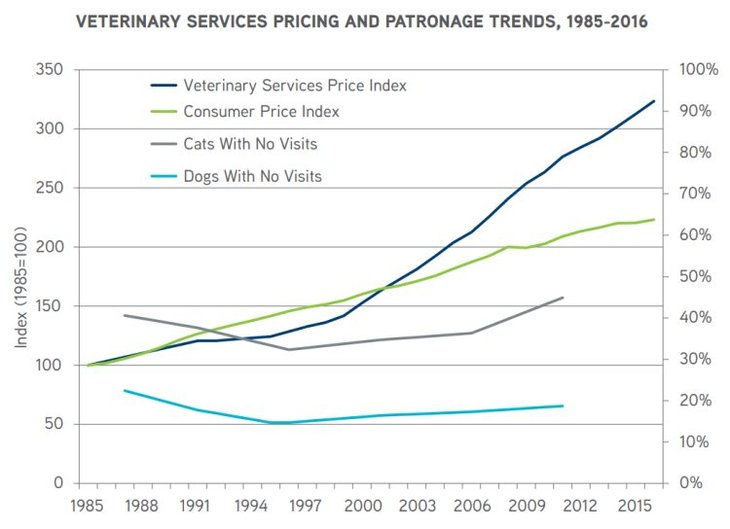
A Breakdown of Standard Veterinary Expenses
Vet expenses vary widely depending on what services your veterinarian is providing. Veterinary practices charge for services like physical exams, diagnostic services, lab work, surgical procedures, anesthesia, hospitalization, and even overnight boarding.
Many of these services can be covered by pet insurance , which would reimburse a percentage of your out of pocket expenditures after you pay your vet.
An appointment for surgery will cost much more than a wellness visit, and regular treatments, such as those for cancer, can add up to a considerable sum over time. Here are some of the most common veterinary services and how much they typically cost.
Tests, Examinations, and Initial Vet Costs:
- Routine checkups: $50 to $250
- Spay/neuter: $160 to $220
- Vaccines per shot: $15 to $28
- Physical exams: $45 to $55
- Fecal exam: $25 to $45
- Heartworm test: $45 to $50
- Dental cleaning : $70 to $400
- Allergy testing: $195 to $300
- Geriatric screening: $85 to $110
Surgeries and Unexpected Vet Costs*:
- Bloodwork: $80 to $200
- X-rays : $150 to $250
- Ultrasounds: $300 to $600
- Short hospitalizations: $600 to $1,700
- Long hospitalizations: $1,500 to $3,500
- Wound treatment: $800 to $2,500
- Emergency surgery: $1,500 to $5000
- Oxygen therapy: $500 to $3000
(*Based on estimates by Emergency Vets USA )
Again, these prices may vary depending on where you live, what type of animal you have, what breed you have, and their health history. Even a routine exam fee can vary state-by-state. According to the ASPCA , recurring medical expenses for a dog can range from $210 to $260 depending on their size.
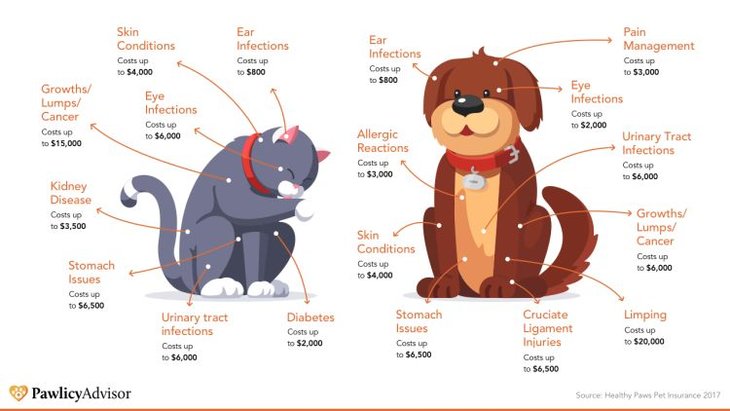
The good news is that you can lower the costs of these services significantly with pet insurance . For example, if you have a pet insurance plan that reimburses you for 90% of covered costs, that $5,000 emergency surgery could end up costing you just $500 out of pocket.
Pet insurance lowers out-of-pocket vet costs.
Plans can reimburse 60-100% of eligible expenses.
Average Vet Costs for the First Year of Owning a Dog or Cat
The APSCA estimates that the first year of owning a dog can cost as much as $2,000 or more , depending on the size of the animal. Meanwhile, the cost of owning a cat can cost up to $1,174 on average.
However, these costs are assuming you’ll only need to bring your pet in for regular visits and won’t have any unexpected charges on your vet bill. If a regular visit costs about $250 and you bring a new dog to the vet only once, the rest of your spending can go to supplies like food, toys, and treats.
If your pet needs some of the unexpected services listed above because they develop an illness or need additional tests, you could end up paying substantially more out of pocket if you don’t have pet insurance.
How Pet Type Can Influence the Costs of a Vet Visit
It’s difficult to nail down the costs of vet care because veterinary medicine differs depending on the type of pet you own. Caring for a smaller animal like a cat or rabbit is generally much less expensive than caring for a large or medium-sized dog — or a horse, for that matter.
Today’s pets are also living longer than ever thanks to advances in medical care and better pet diets. If you have an older pet , you can expect to have higher veterinary costs because pets tend to need more care as they age. Older pets should get regular veterinary examinations so your vet can check for problems.
AVMA notes that “while it’s easy to spot the outward signs of aging such as graying haircoat and slower pace, it’s important to remember a pet’s organ systems are also changing. An older pet is more likely to develop diseases such as heart, kidney and liver disease, cancer, or arthritis. Dogs get cancer at roughly the same rate as humans, while cats have a somewhat lower rate.”
Other factors that can influence veterinary costs are your pet’s weight, health history, and temperament . For example, if your dog is overly aggressive when you bring them to the vet, you may need to give them medication to keep them calm and muzzle them. In some cases, the vet may need to sedate your pet so they can examine them, which can add to your costs.
How Breed Affects Veterinary Costs
The breed of your pet also impacts veterinary costs. When discussing breed, we’re generally discussing dogs.
There are over 190 recognized dog breeds in the United States and only 42 cat breeds. This is partially due to the history of dog breeding and how dogs were used as herders, hunters, and other types of working animals in the past. Still, some cat breeds do have fewer health issues than others.
Many pet insurance plans cover breed-specific issues. If you have a pet breed that tends to have certain conditions, investing in pet insurance could help significantly if those conditions arise.
Some common breed-specific conditions include the following:
- Bladder stones
- Brachiocephalic syndrome (due to narrow nasal passage)
- Ear infections
- Hip dysplasia
- Knee and elbow dislocations
- Slipped discs
If you’re unsure about your pet’s breed-specific conditions, ask your veterinarian about what you can expect.
What to Expect From a Visit to the Vet
A typical visit to the veterinarian can cost as little as $50 depending on the pet being examined and their needs. But, as we mentioned before, those costs can go up if your pet has an unexpected illness or if they need other types of routine care.
Your First Visit
On your pet’s first visit, your veterinarian will conduct a general health screening and wellness exam. They’ll enter your pet’s information into their records. You can expect them to do the following:
- Weigh your pet
- Listen to their heart and lungs
- Take their temperature
- Check their ears, eyes, and genitalia
- Examine their teeth and mouth
- Examine their feces (you may need to bring a sample)
- Give your pet vaccinations (if necessary)
- Test for common diseases (if necessary)
- Determine your pet’s vaccination schedule
The Wellness Exam
Similar to an initial health screening, a wellness exam determines the overall health of your pet. Your regular veterinarian will do a physical examination of your pet, but they’ll also ask you questions about your pet’s behavior, diet, and lifestyle patterns.
A basic vet visit might cost $50, but expenses quickly add up with illnesses and injuries.
For example, it’s normal for dogs to curl up and sleep throughout the day, but if your dog is acting particularly lethargic, this could be a symptom of an underlying condition. Your vet would need to know about this behavior.
Similarly, even the healthiest cats will vomit from time to time . But if they are vomiting often — more than once or twice per week — it could indicate a health condition. This is why it’s important to be completely open about your pet’s behavior with your vet .
Once your veterinarian has assessed the wellness of your pet, they’ll discuss preventative steps you can take to avoid problems. They may recommend you use preventive treatments for fleas, ticks, intestinal parasites, and heartworm. They’ll go over your pet’s nutrition needs, weight management, what pet food you should use, dental care, and more.
Scheduling Routine Check-Ups
Most veterinarians recommend you bring your pet to them at least once per year, but preferably more. Unfortunately, some pet parents bring their pets to the vet less often.
According to a study by the AVMA , about 8% of pet parents don’t bring their pets in for routine checkups once per year. Still, 51% bring them in once per year and the remaining 41% bring them even more often.
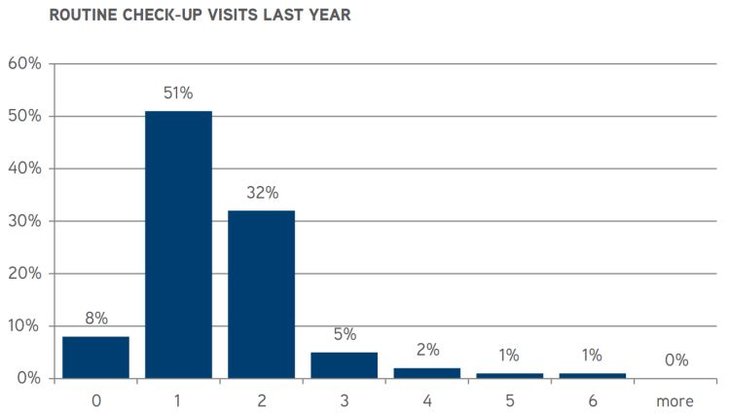
Over 50% of pet owners took their pet to the vet for a routine checkup at least one time in the previous year.
A routine check-up will typically involve a physical examination, a wellness check, and vaccine booster shots, if necessary. If you want to be reimbursed for this kind of routine care, you'll need a wellness plan .
Unexpected Veterinary Costs
If your veterinarian discovers anything out of the ordinary during your pet’s first visit or a subsequent wellness exam, they may wish to do additional tests to determine what’s wrong with your pet.
Generally, veterinarians will only do additional testing if they need to narrow down the possibilities of your pet’s condition to make an accurate diagnosis. Don’t hesitate to ask about the costs of testing beforehand . Once your veterinarian is confident in their diagnosis, they’ll discuss plans for treatment with you.
If your pet is sick or injured, you’ll have to pay some unexpected veterinary costs. This is where pet insurance is essential . Depending on the severity of your pet’s condition, you could have to pay thousands of dollars out of pocket to treat your pet.
If your pet needs life-saving care, they may be admitted to an animal hospital overnight. You’ll need to pay for the boarding of your pet, for any tests conducted to determine what’s wrong, as well as for treatment to make your pet better.
Pet insurance coverage means you only have to pay for a fraction of what you’d normally owe in vet bills.
Health Issues & Vet Costs to be Aware of
- Dog Teeth Cleaning
- Kennel Cough
- Heartworm Disease
- Lyme Disease
- Leptospirosis
- Dog X-Ray Costs
Potential Fees Associated with Emergency Vet Visits
An emergency visit occurs when your pet needs immediate or life-saving care and they can’t wait until regular business hours for an appointment. Thankfully, many veterinary clinics and animal hospitals provide out-of-hours veterinary care for emergencies. If you’re a new pet owner, you should identify your nearest emergency clinic just in case.
If your pet has an emergency, contact your veterinary emergency services provider immediately and speak to the person on-duty. They’ll give you advice over the phone, or they’ll suggest you bring your pet in for treatment.
After your pet is examined, the emergency care vet will discuss whether they need to do additional tests or whether you can move on to treatment. It’s at this point that your costs will begin to go up.
Emergency veterinary fees are typically higher than fees associated with regular care. According to Preventive Vet , a typical emergency visit may involve the following fees:
- ER exam: $75 - $125
- IV catheter: $60 - $75
- IV fluids : $50 - $75
- Blood tests (basic): $75 - $150
- Urine tests (basic): $25 - $50
- X-rays (basic): $75 - $250
- Blood pressure measurement: $25 - $75
- Pain medication: $40 - $80
- Hospitalization / Vet Tech Monitoring: $50 - $200
TOTAL: $475 - $1,080
This is not including any additional costs for treatment, which is dependent on your pet’s condition. This is why the costs of emergency veterinary care vary so much. It’s also the reason financing options and pet insurance are so important during emergencies.
How To Cover Veterinary Costs Without Depleting Your Savings
Clearly, comparing pet insurance options is a must. With a comprehensive pet insurance plan, you won’t have to worry about choosing between your pet’s emergency care and breaking your bank. Good coverage ensures you can get them the care they need right when they need it and gain peace of mind in knowing your prepared for an emergency ( even for rescue pets ).
However, pet health insurance works differently than human health insurance . Most pet insurance providers pay you, the policy holder, instead of the practice or doctor. That means you don't have to worry about find a veterinarian who's "in-network", you can go to any vet you please and get reimbursed just the same - but that also means that you will generally have to pay the cost upfront while you wait for your reimbursement.
Ideally, you should pay for the upfront vet cost on a credit card with a good rewards incentive. For example, if your credit card offer 3% cash back on purchases, by using that card to pay the initial bill you'll be effectively reducing the cost by 3%. Then, in just a few days your pet insurance provider will reimburse you for the bill and you can pay off that credit charge with the reimbursement.
For example, let's pretend you have a policy with 90% reimbursement and a $250 deductible...
Your vet bill is $1237, you put it on your credit card which give 3% cash back. Your plan reimbursed you for 90% of the cost after the deductible is met. In this case, let's say it's the first vet cost of the year so your $250 deductible is not yet met. Eight days after paying your vet bill your pet insurance provider reimburses you $888.30 (or ($1237 - $250)*0.9).
Your total cost would then be: $1237 - $888.30 - (3% back on $1237) = $311.59
That's a massive savings. And, if another issue arises your deductible is already paid for that year so you'll simply be reimbursed 90% (or what ever your policy indicates) on your next bill.
For example, vet bill #1 cost $1237 but it only cost you $311, then vet bill #2 comes in for $600 but it only costs you $42! Since your deductible was paid for in vet bill #1, you'll be reimbursed 90% of the full vet bill #2 plus 3% back on the initial bill (if you used a credit card with that reward rate)... $600 - 90% (or $540) - 3% (or $18) = $42.
This way, your bank account goes untouched and your savings are maximized.
Just make sure you get the right pet insurance policy at the best price, no matter the provider .
Do you want to find the best pet insurance?
Let's analyze your pet's breed, age, and location to find the right coverage and the best savings. Ready?
About Pawlicy Advisor
The pet insurance marketplace endorsed by veterinarians, at Pawlicy Advisor we make buying the best pet insurance easier. By comparing personalized coverage and pricing differences we can save you a ton of money, up to 83% in some instances!

Instantly Compare Pet Insurance Plans
How To Compare Plans
Determine If Pet Insurance Is Worth It
Determine If Wellness Plans Are Worth It
Vet Visit Costs
New Puppy Checklist
Comparison Charts
ASPCA vs. Pets Best
Pets Best vs. Embrace
Embrace vs. Pumpkin
Pumpkin vs. MetLife
More Comparison Charts
Find Your State
Pennsylvania
More States
Dog Insurance
German Shepherd
English Bulldog
French Bulldog
More Breeds
.css-3sl4ml{color:#E26C33;-webkit-text-decoration:none;text-decoration:none;}.css-3sl4ml:hover{color:#E26C33;-webkit-text-decoration:underline;text-decoration:underline;} Edwin Plotts .css-aqd080{font-size:16px;font-weight:bold;}@media screen and (min-width: 992px){.css-aqd080{font-size:21px;}} Director of Marketing & Foster/Rescue Parent - Pawlicy Advisor
Edwin Plotts rescues and rehomes cats in Savannah, GA - while leading Pawlicy Advisor 's brand growth. He's a pet parent of two rescued sibling cats: Greyson and Babs. He's also an avid volunteer with Flatbush Cats and The Toby Project.
More on Veterinary Costs
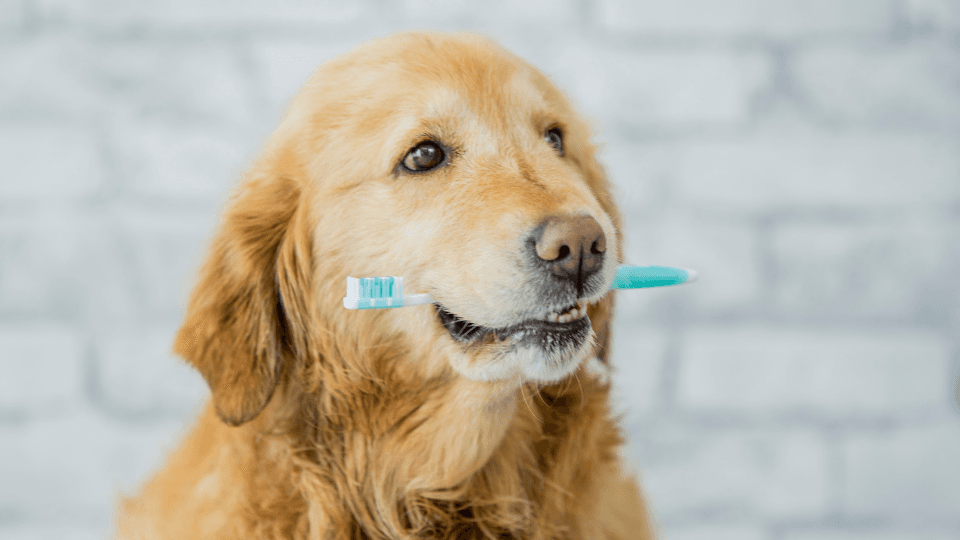
Budgeting For Pet Dental Costs: Vet Bills, Insurance & More
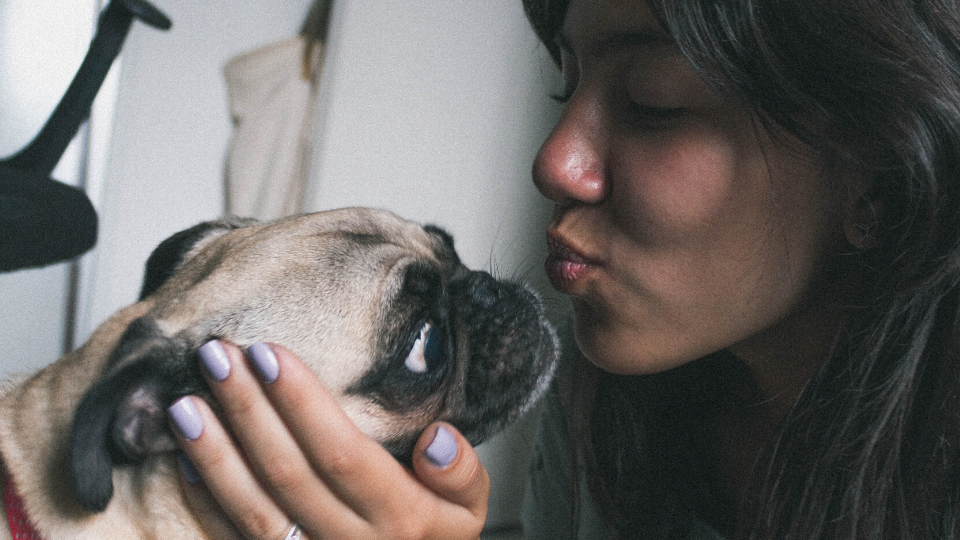
Average Pet Insurance Cost in 2022 by Breed, Age, & State
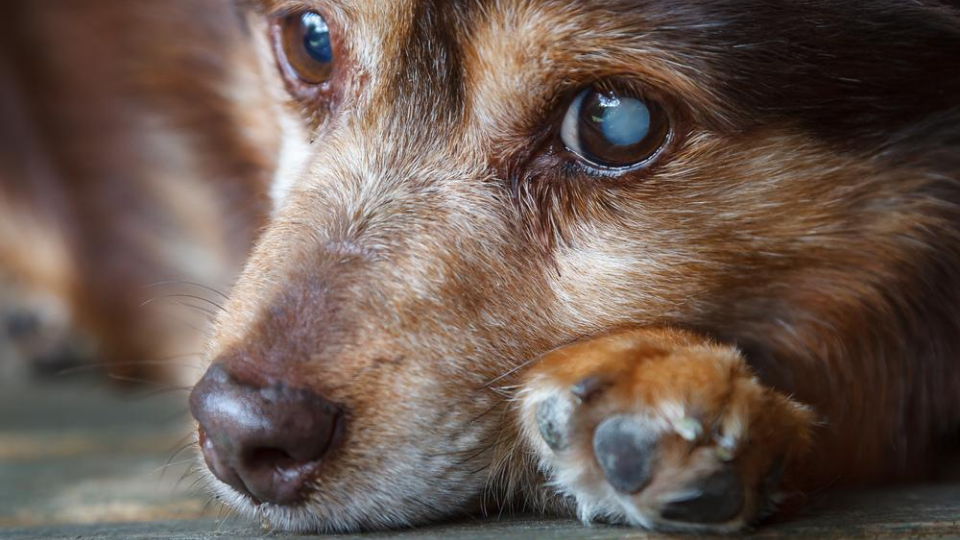
Dog Cataract Surgery Costs and How to Save
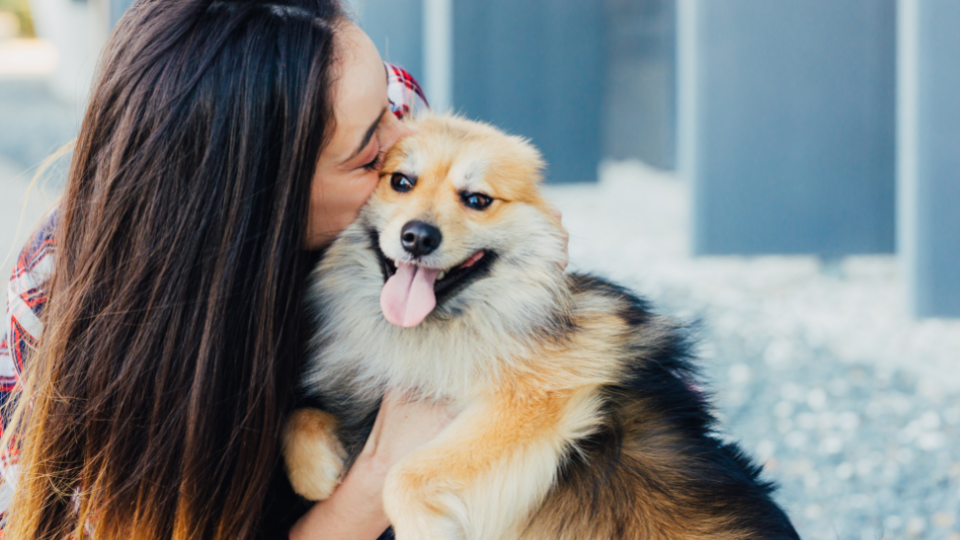
Dog Teeth Cleaning Costs: Best Ways To Save On Dental Care
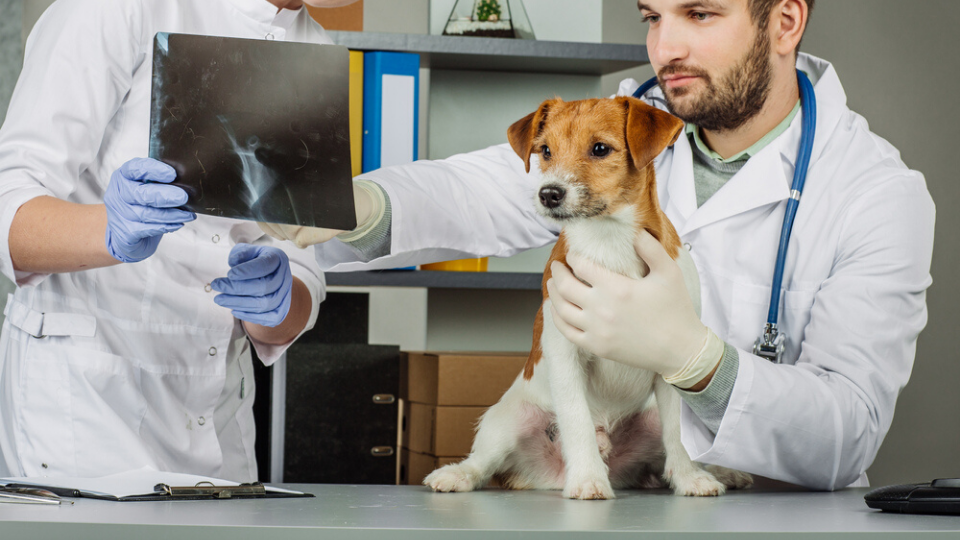
Dog X-ray Costs and How to Save
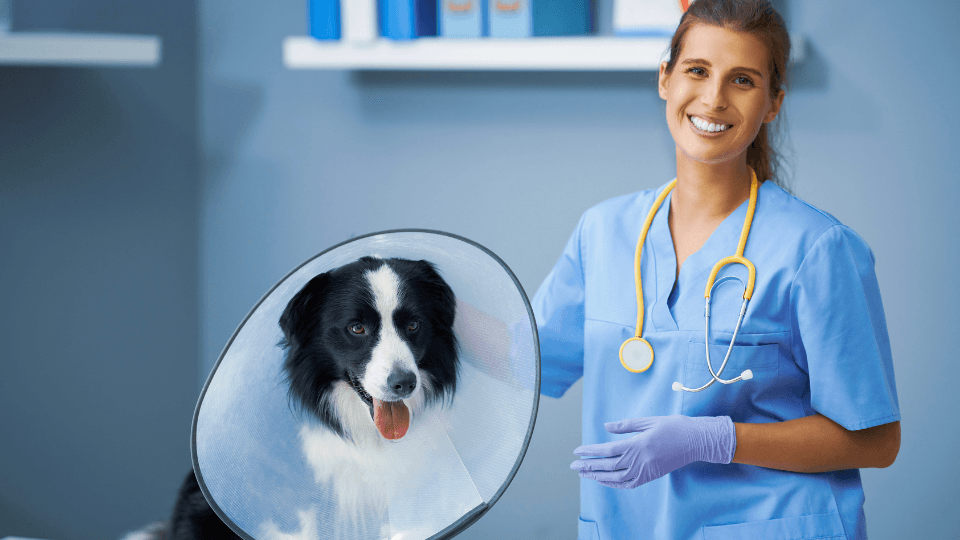
How Much Does it Cost to Spay or Neuter a Dog?
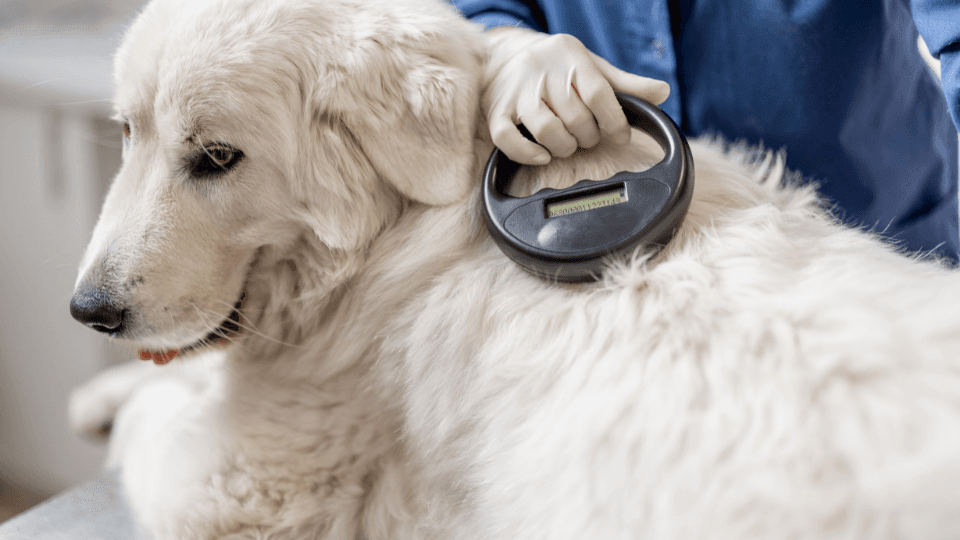
How Much Does It Cost to Microchip a Dog?
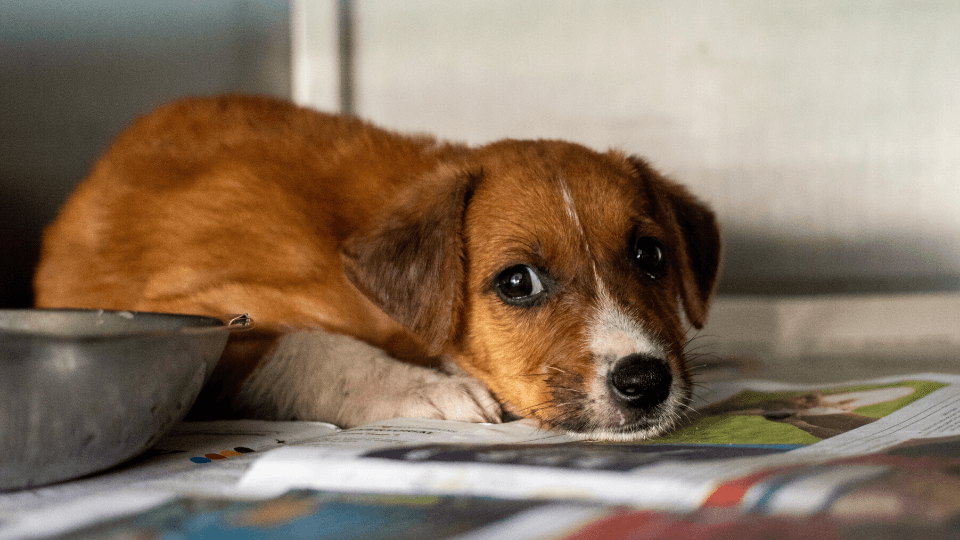
How Much Does It Cost to Treat Parvo?
More on pet insurance.

How To Compare Pet Insurance Plans
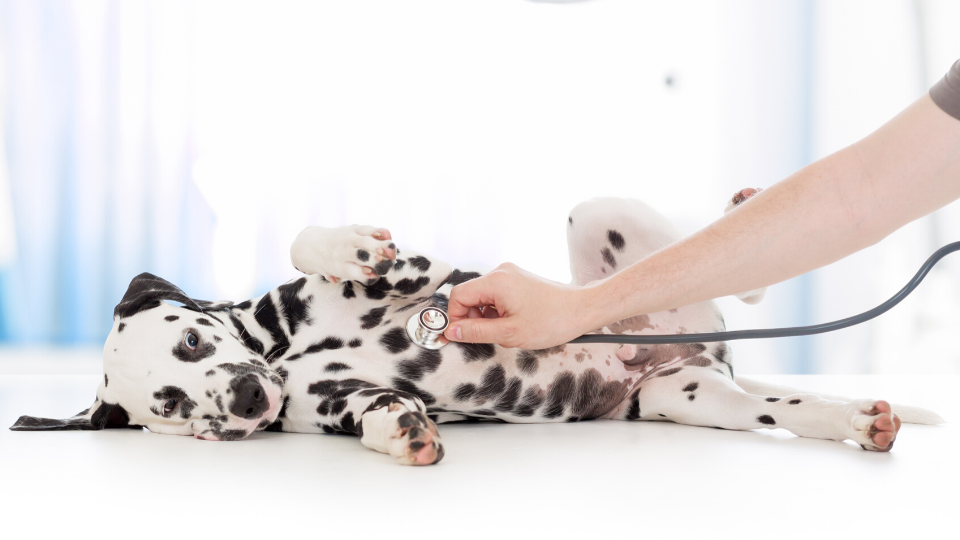
Is Pet Insurance Worth It? Here's A Vet's Perspective
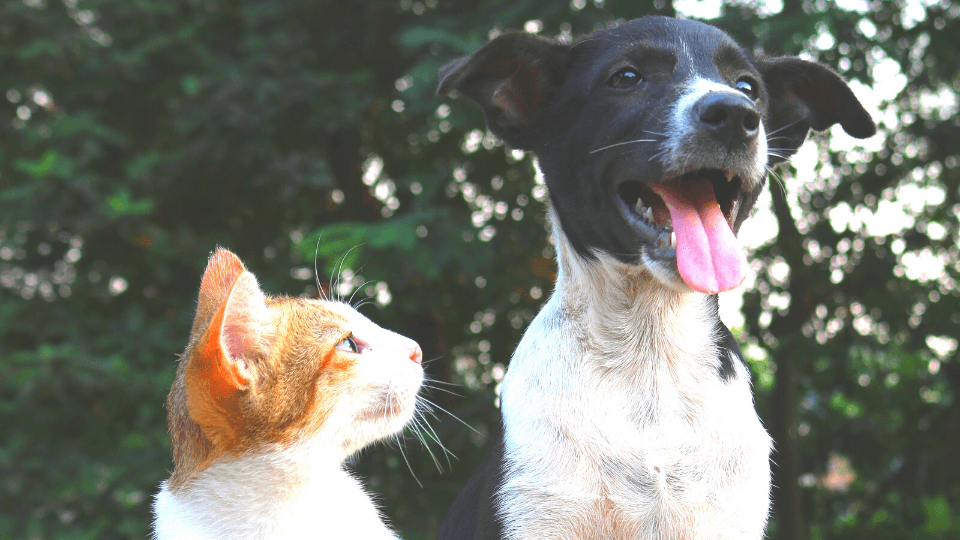
How to Get the Best Pet Insurance Plan, No Matter the Provider
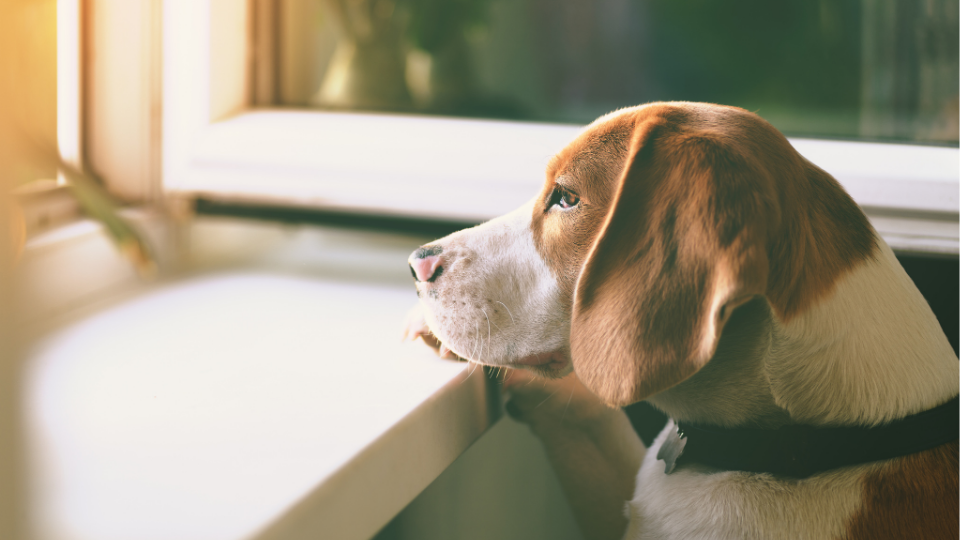
How Soon Does Pet Insurance Take Effect?

Pet Insurance for More Than One Pet: Multi-Pet Discounts And Strategies

When Is Pet Insurance A Great Decision?
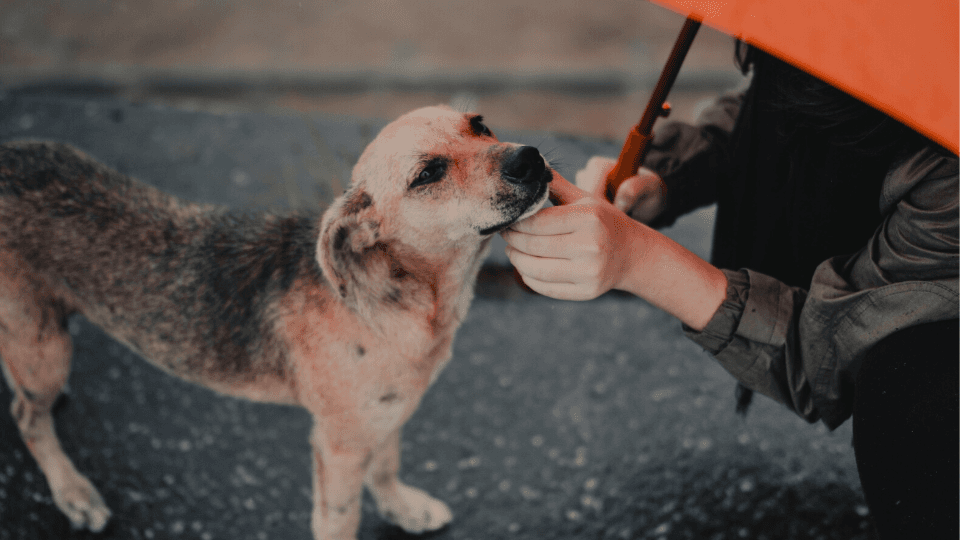
How Pet Insurance Works: Your Essential Guide

5 Reasons Why Outdoor Cats NEED Pet Insurance

Fascinating Pet Insurance Statistics 2019-2020

Bestie Paws Hospital
Everything You Need To Know!
- 🌐 Contact Us
- Vet Services
Cat’s First Vet Visit: A Comprehensive Guide 🐾
Welcoming a furry feline friend into your home is an adventure filled with cuddles, playtime, and, of course, responsibilities. One of the first and most crucial steps in your journey together is the inaugural visit to the vet. We’ve got you covered with essential insights and a detailed cost breakdown to prepare you for what lies ahead.
🚀 The Journey Begins: Understanding The Importance
Your cat’s initial vet visit isn’t just about getting shots; it’s a foundational step in ensuring a long, healthy, and joyful life together. This visit can set the tone for your cat’s perception of vet visits and health care overall. Think of it as the beginning of a beautiful friendship between your cat and their medical guardian.
💼 What to Expect: The Itinerary
First visits are thorough, encompassing a full physical examination to check for any underlying issues your kitty might be silently facing. This includes weight checks, dental evaluation, and discussions about diet, lifestyle, and preventive care. It’s not just about the now but setting up for a healthy future.
📊 The Cost Breakdown: A Visual Guide
Costs can vary based on location, the vet’s office, and your cat’s specific needs, but here’s a general overview to give you an idea:
🛠 Tips & Tricks: How to Ace the Visit
Bring a Cozy Carrier : Make sure your cat feels safe and secure during their travel to the vet with a comfortable carrier.
Familiar Scents : A blanket or toy from home can help soothe your cat’s nerves.
Record Keeping : Bring any medical records or information provided by the shelter or previous owner.
Questions Galore : Prepare a list of questions you have for the vet. No question is too small!
📚 Beyond the Visit: The Road Ahead
This first visit paves the way for a proactive approach to your cat’s health. Regular check-ups, keeping up with vaccinations, and early detection of potential health issues can make all the difference. Plus, fostering a positive relationship with your vet ensures your cat has a reliable ally in their corner.
💖 Parting Purrs
Your cat’s first vet visit might seem like a small step, but it’s a giant leap towards a healthy and happy life together. With the right preparation and understanding of what to expect, you can make this experience as stress-free and positive as possible—for both you and your feline friend. Remember, this is just the beginning of a wonderful journey of companionship and love. Here’s to the start of something beautiful! 🌟
Q: What’s one often-overlooked aspect of a cat’s first vet visit that owners should pay more attention to?
A: Beyond the palpable metrics and physical health checks, the emotional wellbeing of our feline friends during their initial vet visit is a critical yet frequently glossed-over aspect. Cats are creatures of comfort and routine, and the introduction to a new, unfamiliar environment can be a source of stress and anxiety. Owners should prioritize creating a sense of security and calmness, utilizing pheromone sprays in carriers or bringing along a favored toy or blanket that smells like home. This not only aids in a smoother vet visit but also helps in forming a positive association with the vet clinic from the get-go.
Q: Can you elaborate on the importance of the feline leukemia virus (FeLV) test during the first visit?
A: The FeLV test is a linchpin in preventative feline healthcare, yet its significance can sometimes be overshadowed by the more immediate demands of vaccinations and deworming. FeLV is a sly adversary, often lurking without noticeable symptoms until it’s too late. It compromises a cat’s immune system, making them vulnerable to a plethora of secondary infections. Early detection through testing enables prompt management strategies, potentially extending a cat’s life. Ignorance in this aspect can lead to a Pandora’s box of health issues, making the FeLV test not just important but essential.
Q: Microchipping seems straightforward. Is there more to it that cat owners should understand?
A: Microchipping, at its core, seems like a one-and-done deal. However, the narrative doesn’t end at implantation. A critical yet underemphasized facet of microchipping is keeping the registered information up to date. Life happens—people move, phone numbers change, and if the data linked to a microchip isn’t current, the effectiveness of this identification tool diminishes drastically. It’s akin to having a safety net with holes; the security is illusory. Ensuring the microchip’s information is accurate and updated is as crucial as the chip itself. It’s a lifeline back to you for your cat, should they ever wander too far from home.
Q: Spaying and neutering are often advised, but what are the less obvious benefits of these procedures?
A: The conversation around spaying and neutering is frequently framed within the context of population control and the prevention of unwanted litters. While these are valid points, the undercurrents of health benefits these procedures offer are monumental. Spaying a female cat before her first heat significantly reduces her risk of developing mammary cancer, a benefit not widely circulated. For males, neutering diminishes the drive to roam, decreasing the risk of them getting lost or injured in fights. Moreover, it plays a significant role in curtailing the incidence of testicular cancer and reducing certain types of aggression. These procedures are not merely surgical interventions but gateways to a healthier, potentially longer life.
Q: How can cat owners prepare their pets for a stress-free first vet visit?
A: Preparing a cat for their inaugural visit to the vet clinic goes beyond just physical readiness; it’s about mental preparation too. Begin with carrier training weeks in advance, allowing the cat to associate the carrier with positive experiences. Introduce it as part of their environment, placing treats, meals, or familiar bedding inside to build positive associations. On the day, maintain a calm demeanor, as cats are incredibly perceptive and can pick up on their owner’s emotions, mirroring their stress or calmness. Using a synthetic feline pheromone spray inside the carrier and car can help soothe their nerves, creating an invisible cloak of comfort around them. It’s a method that whispers rather than shouts, gently preparing your cat for the new experience without alarming their senses.
Q: In terms of diet and nutrition, what pivotal advice should cat owners receive during the first vet visit?
A: The discourse on diet and nutrition is a treasure trove of insights that can pivot a cat’s trajectory towards optimum health. The vet’s guidance should transcend the basics, offering a tailored nutrition plan that accounts for the cat’s age, breed, activity level, and any specific health concerns. Highlighting the importance of hydration, especially for cats prone to urinary tract issues, and recommending wet food or a water fountain can be a game-changer. The concept of ‘life stage feeding’ is crucial, with different nutritional requirements for kittens, adults, and senior cats. This bespoke nutritional roadmap can deter common health issues like obesity, diabetes, and renal disease, laying the foundation for a robust health framework. It’s a dialogue that serves not just as advice but as a preventive strategy, meticulously designed for each unique feline.
Q: What are the most common misconceptions about cat health that should be addressed during the first vet visit?
A: Unraveling misconceptions is akin to clearing the fog on a obscured path, and the first vet visit offers the perfect opportunity to do so. A prevalent myth is that indoor cats don’t require vaccinations or parasite prevention. However, pathogens can be unwittingly brought into the home on shoes or clothing, and parasites like fleas can be a nuisance even for indoor felines. Another common misconception is interpreting a cat’s aloofness as self-sufficiency, especially in terms of health. This belief can lead to signs of illness being overlooked, as cats are stoic creatures adept at masking discomfort. Emphasizing the importance of regular vet visits for preventive care, regardless of a cat’s demeanor or living situation, can pivot the owner’s approach to proactive rather than reactive care. It’s about illuminating truths in a landscape riddled with myths, guiding owners towards a deeper understanding and connection with their pets.
Q: Reflecting on behavioral issues, what insights can help cat owners during the early stages?
A: Addressing behavioral issues from the outset can steer the relationship between cat and owner towards harmony. Early socialization is paramount; exposing kittens to a variety of people, pets, and situations can significantly reduce fear and aggression. Encouraging play and exercise with toys mimics their natural hunting behaviors, preventing boredom and reducing the likelihood of destructive habits forming. Litter box issues, often a sign of stress or medical problems, require a detective’s eye to decipher, looking beyond the surface to underlying causes. Understanding the multifaceted nature of feline behavior, recognizing stress signals, and providing a safe, enriched environment can transform potential challenges into opportunities for bonding and growth. It’s a journey of discovery, where patience and observation unlock the door to a cat’s inner world, fostering a relationship built on mutual respect and understanding.
- The Ultimate Guide to Your Kitten's First Vet Visit
- Puppy's First Vet Visit and Vaccination Costs 🐶💉
- Your Dog's First Vet Visit: Cost Breakdown with a Twist 🐾
- Vetco's First Free Visit for Puppies and Kittens
- Banfield Pet Hospital's Free First Visit Offer 🐾
Leave a Reply Cancel reply
Your email address will not be published. Required fields are marked *
Save my name, email, and website in this browser for the next time I comment.
- Our Hospital
- Our Veterinarians
- Why Choose Us
- In The Community
- COVID-19 Protocols
- Wellness Plan Benefits
- Medium Dogs
- Extra Large Dogs
- Routine Exams
- Prevention & Vaccinations
- Dental Care
- Acupuncture
- Dermatology
- Cold Laser Therapy
- Emergencies
- Daycare & Boarding
- Bathing & Grooming
- Patient Information
- New Patients Form
- Grief Counseling
- Financing Options
- Book Appointment
- (336) 766-8950
Kitten First Vet Visit - What to Expect & What it Will Cost
Have you welcomed a beautiful new kitten into your heart and home? If so, early veterinary care can help to set your tiny fur baby on the path to excellent life-long health. Today, our Clemmons vets discuss kitten first vet visits.
Why Early Veterinary Care is Essential for Kitten Health
Our team at Animal Hospital of Clemmons understands how exciting it is to welcome a new kitten into your family. Of course, you are totally smitten with your kitten but while you are having fun getting to know each other it's important not to forget about the essential healthcare that your feline friend needs to start life out as healthy as possible.
It's likely not something you want to think about, but kittens often carry a variety of highly contagious parasites and infections. Having your adorable kitty examined by a veterinarian right away sets your kitten on a path to optimal health, while also protecting other pets and people from any communicable diseases your kitten may be carrying.
We highly recommend booking your kitten's first vet appointment right away, especially if they are exhibiting any troubling symptoms such as persistent scratching, watery eyes, labored breathing, or poor appetite.
When to Take Kitten for First Vet Visit
It is a good idea to take your new kitten to the vet for a checkup as soon as possible. This will allow your veterinarian to check for any parasites or signs of viruses that could be transmitted to other pets (or even people) in your home. Most kittens leave their mothers and head to their new forever homes at about 8 weeks of age, so this is the ideal time to take them for their first vet visit.
A newborn kitten's first vet visit should occur immediately upon finding a newborn without a mother. Contact your vet right away. Your veterinarian will be able to provide you with essential guidance on how to care for your tiny new family member.
New Kitten Vet Visit Checklist - What To Bring
When it's time for your kitten's first vet visit there are a few things you may want to take along, including:
- Any information and paperwork provided by the shelter or breeder
- Notes of any concerns you have about the kitten
- Stool sample
- Cat carrier
If you're taking your kitten to the vet for the first time, make sure to bring any adoption documentation with you. Your veterinarian should also be aware of all treatments and immunizations that have already been administered to the kitten. If it is not possible, write down what you were told at the adoption so you don't forget.
What Happens During Your Kitten's First Vet Visit
The veterinary team will ask you about your kitten's history and do a physical examination. During your kitten's first checkup, your vet will look for signs of parasites such as fleas and mites. The vet will examine your kitten's eyes, ears, lips, skin, coat, and entire body. This includes palpating the abdomen to feel the organs and using a stethoscope to listen to the heart and lungs. A stool sample may also be taken to see whether your kitty has any underlying health issues.
For optimal health, weaning time, and socialization, kittens should be adopted at the age of 8 to 10 weeks. If your kitten is young, especially if it is 6 weeks or under, the vet will need to examine the kitten's nutrition and hydration status and offer any necessary supplementation.
Typically your kitten will receive their first round of core vaccinations at their first vet checkup. These vaccines will help protect your kitten against potentially serious feline health conditions, specifically Rhinotracheitis, Calicivirus, Panleukopenia, and Chlamydia. It is important to note however that your kitten is not fully protected against these conditions until they have received all of the required rounds of their vaccines. Be sure to speak to your vet about when your new kitty will be fully protected.
Your vet will also discuss the optimal timing for booking your feline friend's spay or neuter procedure , and why this is an important step for you kitty's health.
Additional Testing
Besides a physical examination performed by your vet, your kitten will likely also need a fecal exam and a blood test.
Fecal Exam : You will most likely be requested to bring a fecal sample from your kitten to your veterinarian for testing for parasites like intestinal worms, giardia, and other potential issues. Because not all intestinal parasites show up on fecal tests and a substantial percentage of kittens have them, your vet may give your kitten a deworming medicine at each appointment. Many parasites can be transmitted to humans, thus it is critical to remove them from your cat.
Blood Test : The American Association of Feline Practitioners recommends that all newly adopted cats, regardless of age, be tested for FeLV and FIV. If your kitten is less than nine weeks old, your veterinarian may advise you to delay testing until it is at least nine weeks. If you have other cats in the house with your kitten, keep them separated until they have tested negative in case your new kitten has a transmissible disease.
Kitten First Vet Visit Cost
The first vet visit, as well as subsequent routine exams , can vary in price from vet to vet, cat to cat, and pet to pet. To get an accurate estimate of the cost of your kitten's first appointment, please contact your veterinary clinic directly.
Questions To Ask Your Kitten's Veterinarian
Here is a list of questions you can ask your vet during the first visit. Of course, there are a myriad of others you can ask, and we encourage you to do so, but these should start you on the road to responsible cat ownership:
- Is my cat a healthy weight?
- Are they eating the right food and getting proper nutrition?
- Are they sleeping too much or too little?
- What resources are available at this vet clinic? (ex. X-rays, labs, etc.)
- Are there any common parasites or pests in the area? How can I prevent them?
- Is cat insurance worth it and if so, who do you recommend?
- Do you have any grooming recommendations for my cat?
- Are there any vaccinations my cat needs?
- Where are the nearby emergency services for off-hours or holidays?
- What do you recommend for flea and tick prevention?
- How is my cat’s dental health?
- Any cat food label questions such as how to read them, what to look for, etc.
Note : The advice provided in this post is intended for informational purposes and does not constitute medical advice regarding pets. For an accurate diagnosis of your pet's condition, please make an appointment with your vet.
Let our experienced veterinary team help you to provide your new kitty with the very best in health care. Contact our Clemmons vets to book your kitten's first vet visit.
Looking for a vet in clemmons.
We're always accepting new patients, so contact our veterinary hospital today to book your pet's first appointment.
Related Articles View All
Exploring cat dental health - gingivitis.
Is your cat refusing to eat, or losing weight? It could be due to a dental health problem such as gingivitis. Read on to learn about the signs and how gingivitis in cats can be treated.
The Best Way to Travel With a Cat
Planning a trip away from home and want to take your feline friend along with you? Here are a few helpful tips from our Clemmons team to help make the journey an enjoyable experience for both you and your cat.
How to Tell if Your Cat Has a Broken Leg
Regardless of whether your cat is a curious outdoor explorer or a chilled-out homebody, accidents can happen. Today, our Clemmons vets share signs that may indicate that your cat has a broken leg, and what you should do.
Cat Coughing, Sneezing & Wheezing
Is your cat coughing, sneezing and wheezing instead of contentedly purring? Cat coughs are a sign that something is irritating your feline friend's lungs, airway or throat. Today, our Clemmons vets share some common causes of cat coughs and what to do.
Looking for a vet in Clemmons? Get in touch today!
We are always thrilled to welcome new patients into our veterinary family, so contact our office today to book your first appointment with our team.
Request Appointment
Call Contact
Save 15% on your first auto-ship purchase. Enter SAVE15 at checkout.
Preparing for your kitten's first vet visit
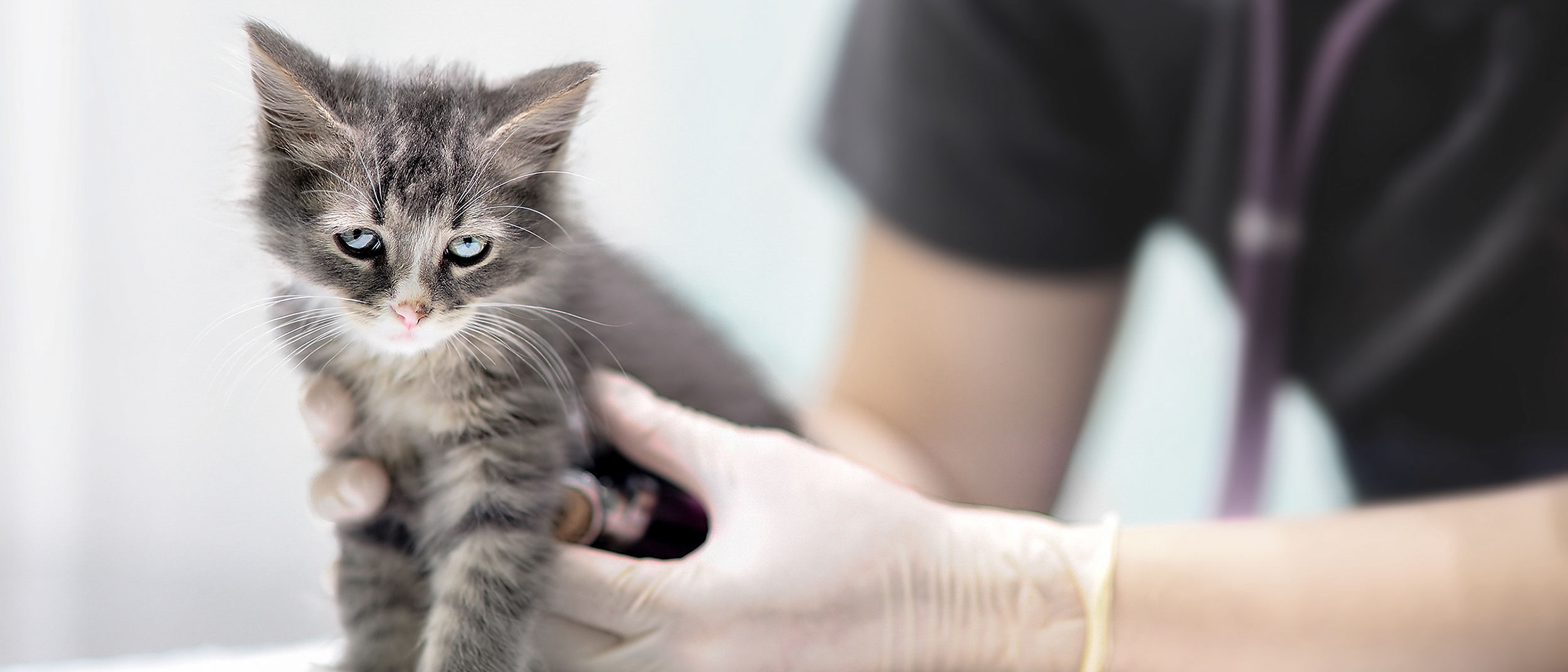
You may already be used to the process of taking pets to the vet, but if not, then it's worth spending some time getting to understand the process and how to make sure your kitten is as comfortable as possible throughout.
How to choose your kitten's vet
When you first got your kitten, you may have been advised to keep taking them to the same vet. If this is not possible, for whatever reason, you will need to choose a clinic for your pet.
Things to consider when choosing a new veterinary practice are:
- The practice's local reputation
- How close to home it is
- How to get there
- If you can park easily
- If the clinic is clean and well-maintained
- If the pet's files are kept up to date
- Whether they send out reminders for vaccinations on health check-ups
- What preventative medicine programs they have in place
- The standard and range of equipment they have
- How they organize emergency or out-of-hours services
- Whether they offer nutritional advice for your pet
- If the approach is suitable for your cat's needs
For some time now, practitioners who are particularly aware of cats" special needs have adopted a "cat-friendly" approach. These clinics are designed around cats' needs, with surgery times or special waiting areas just for cats. There are soothing pheromone dispensers, diffuse lighting, a calm atmosphere, and an especially patient, attentive approach. All these elements allow vets, owners, and cats to have a consultation or receive care in optimal conditions.
When cats are really uncooperative, or perhaps even aggressive, during visits to the vet it's because they are frightened and have no other way of dealing with the "threats" they feel assaulted by.
What to do before your kitten's visit to the vet
Your vet will find your information, as the cat's owner, enormously helpful in deciding which vaccinations are required.
Before you visit, check your cat's Health Record Book. It can be helpful to write some information down, like your cat's diet (brand, quantity, etc.), drinking habits, environment, and whether you have noticed any eating, digestive, or behavioral changes.
Keeping a paper record of your cat's health history and past treatments can be very valuable—ideally, keep it in its health folder.
Transporting your kitten to the vet
For reasons of safety, your cat should travel in a specially designed car carrier. Ideally, this should be a familiar object for your kitten. To make things easier, if you are planning a visit to the vet soon, take the carrier out several days before the consultation, and leave it open in a corner of the house where your kitten likes to go.
You can spray soothing pheromones and put a blanket inside which already carries the cat's own scent—this will help your kitten get used to the box and feel safe, protected from prying eyes. If the cage has an open side, cover it with a blanket or a towel so that it less exposed.
How to handle your kitten at the vet
To limit the impact of a visit to the vet, there are some useful tips you can follow:
- In the waiting room, leave your cat in its basket, and put it on a raised surface like a chair.
- Try not to make any sudden movements, and take your cat out gently to put it on the examining table.
- Some cats feel reassured in their cage. If this is the case, take off the top part, so that the vet can reach the animal.
- Speak to your cat in a soft voice, and stay calm yourself. If you are agitated, your cat will feel it, and will become even more stressed.
- You can trust the professionals: your veterinary team are used to dealing with cats, even the least cooperative ones. If you try to intervene, not only will you be in the way, but you could get hurt.
- Some vets make house calls. In this case, shut the cat in just one room, preferably one without too many hiding places. Remember that some visits will certainly require you and the cat to go there instead.
- A frightened cat can make a condition even worse, especially if it has respiratory problems or has suffered an accident. Staying calm, soothing your cat by stroking, and using a soft voice is the best approach here.
- If your cat needs to be hospitalized, choose somewhere that takes cats' specific needs into account if you can. If the visit has been planned in advance, you can usually take your cat's cushion or favorite blanket, or even a piece of clothing that you have worn, which will consequently be infused with your scent.
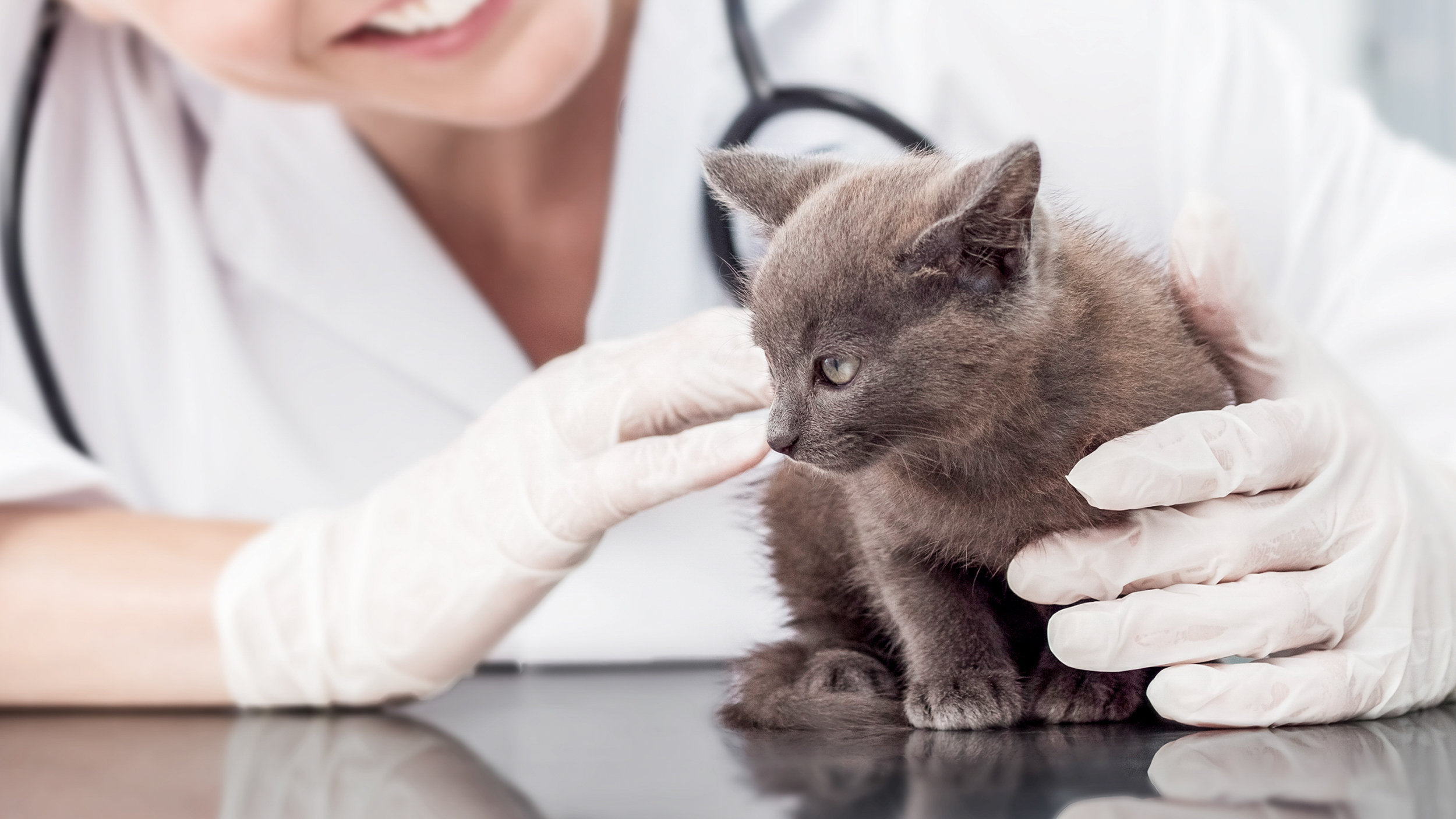
Returning home from the vet
Most of the time, cats are delighted to be back in their own familiar environment. When you get back from the vet clinic, let your cat settle in calmly.
Cats (if they are healthy enough to do so) will certainly want to make sure that the furniture hasn't been moved around, that the yard is still there, and that the litter box is indeed theirs.
Very often they will inspect their favorite places and deposit their odor by rubbing their forehead, or sharpening their claws.
However, in homes with several cats, you will need to take a few precautions in order to have a happy and serene return to the feline community.
Reintroducing a your kitten to other pets
In well established groups of cats, each one knows the others and they have regularly exchanged olfactory signatures.
It can happen that a cat leaves the group temporarily and, when it gets back to the household, is no longer recognized by one or all of its fellow cats, which can cause anxiety or even fighting.
It is therefore necessary to take certain precautions when the traveler returns home again.
These precautions can be also used when introducing a new arrival for the first time, whatever his/her species:
- You need to first of all make sure that the atmosphere in the house is peaceful, by spraying synthetic pheromones.
- So that the new arrival has a "local" smell, you can rub it with a piece of cloth infused with the odor of a cat that has not left the household.
- If possible, place a cover used by cats who haven't moved, in the pet carrier, so that the homecoming cat recognizes the odor of its fellow cats.
A stressful encounter before, during or after a visit to the vet can leave a lasting impression on your kitten and make them more resistant to appointments in the future.
Taking these few simple steps to ensure this process is calm and stress-free will mean your cat will grow to be more comfortable and confident when visiting the vet in adult life.
Related Articles
Preparing your home for your new kitten
Hygiene and grooming tips for your kitten

Tailored nutrition for your kitten
Nutritional formulas that help to build your kitten's natural defences, support healthy growth, and aid in digestive system development.
Like & share this page
- Search Search Please fill out this field.
- Sweepstakes
- Living with Pets
Everything You Need to Know About The Cost of a Vet Visit
Nobody wants a surprise cost at a vet visit. Here are insights into what’s covered at various vet visits, and how much each vet visit will cost.
As a freelance writer, Stacey Freed is never too far from her Lab, Gerty, who sits beneath the desk all day while Stacey writes for national trade and consumer publications. Gerty is a great listener, and as soon as she hears the word "okay" she knows a task is done and it's time to head out for a hike.
:max_bytes(150000):strip_icc():format(webp)/IMG_0770-2000-2a820a457ba64058913b3a3094aa79e6.jpeg)
Sarah Kaufman, a schoolteacher, and Sam Schreibman, a financial trader, living in Jersey City, N.J. recently purchased their miniature schnauzer puppy, Sophie, from a breeder in Rochester, N.Y. The couple saved money to be able to afford the dog and her accoutrements — food, crate, playpen, toys, shampoo, probiotics, leash, harness, and, of course, veterinary bills. But when they discovered the costs of the puppy’s first vet visit they were surprised. “The first round of shots was buried in the breeder’s costs,” Kaufman says. But she and Schreibman paid $245 out of pocket for the second round. “I wasn’t expecting it to cost that much, and we still have a third round to go.”
These costs are typical, says Sharon Albright, DVM, manager of communications and veterinary outreach for the American Kennel Club Canine Health Foundation , but they “will vary across the United States based on regional and economic factors, and like everything else these costs will likely increase every year.”
Costs of Vet Visit
According to Pet Finder , an online service that helps people find pets to adopt, the average vet cost for the first year of dog ownership, which includes vaccines and routine care, heartworm tests, heartworm prevention, and flea/tick prevention ranges from $165–$700. The same health maintenance over time will run $150–$615 a year. The fees for cats fall within the same ranges.
However, this’s assuming your pet remains healthy. All bets are off when it comes to an emergency vet visit. Here are some average costs for different types of vet visits:
Costs For a First-Time Vet Visit For Puppies and Kittens
At a first-time vet visit, the vet will do a general physical — checking weight and temperature, listening to your pet’s heart and lungs, checking the skin, fur, eyes, ears, teeth, etc. and examining feces (you may be asked to bring in a sample). Puppies will receive a slew of vaccines, including those for distemper, adenovirus, parvovirus (DAPP), and rabies. Kittens will receive vaccines for feline viral rhinotracheitis (FVR), feline calicivirus (FCV), and feline panleukopenia (FPLV), and may also get tested for feline leukemia virus (FeLV) and feline immunodeficiency virus. Each vaccine costs $10–$20.
Total costs for that initial vet visit range from $100–$300, depending on where you live. San Francisco; Fort Lauderdale, Fla.; and Aurora, Colo. are the three most expensive cities for vet bills, according to RedFin.com .
Costs For a Yearly Wellness Vet Visit
A regular annual physical for a dog or cat averages $50. This visit usually includes vaccine booster shots, each one costing $18–$25, a heartworm test ($45–$50), and a fecal exam ($25–$45).
As your pet ages, your vet will likely suggest geriatric screening, which includes blood work and urinalysis ($85–$110), dental work (a cleaning alone can cost anywhere from $150–$500), and possibly allergy testing ( $200–$300 ).
Costs For Emergency Vet Services
Visiting the emergency animal hospital might cost you $500–$1,000 or more, depending on whether you have a cat or a small or large dog and what needs to be done. According to online emergency vet finder Emergency Vets USA , an exam and consultation costs $100–$150; bloodwork, $80–$200; X-rays, $150–$250; wound treatment and repair, $800–$2,500; and surgery, $1,500–$5,000.
While there’s no way to be fully prepared for vet costs, it’s good to be armed with the knowledge of approximately how much services will cost. “My best piece of advice,” Albright says is “do some research. Compare vet prices in your area before you add any pets to your family.”
Related Articles
More related articles.
- Cat Behavior
- Health & Care
Average Cost of a Vet Visit for Cats in 2024: How Much Should I Expect to Pay?
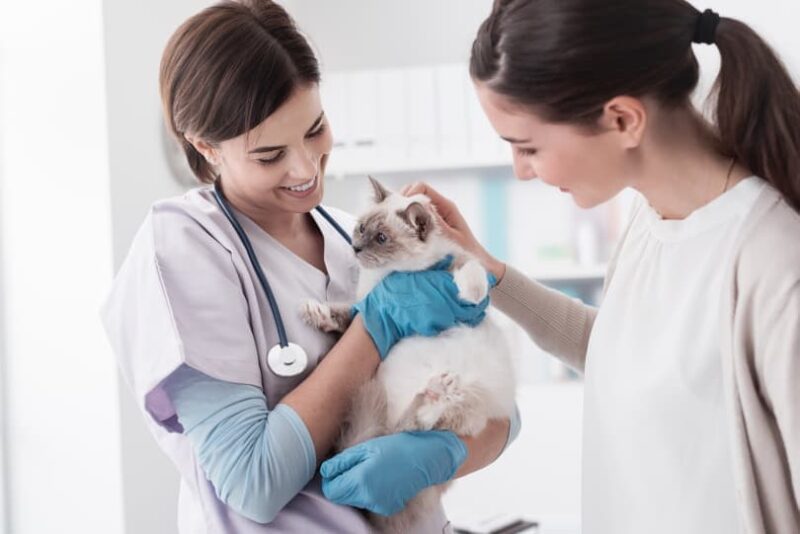
Image Credit: Stock-Asso, Shutterstock
Last Updated on January 10, 2024 by Catster Editorial Team
Cats require love, discipline, protection, and high-quality food to thrive. They also need to see the veterinarian regularly to ensure their health stays strong throughout their life. It is easy to tabulate how much food, bedding, and toys will cost you as time goes on. But how much will it cost to get your cat veterinarian care in the coming years? Here is everything you need to know about the average cost of a vet visit for cats this year, which can be between $40 and $150, however, certain procedures will be more costly than the cost of a general checkup .

- How Much Is a Vet Visit for a Cat?
There is no way to know precisely how much a visit to the vet with your cat will cost because it depends on many things, including the reason for the visit, the types of tests that may be done, and how long the visit takes overall. It also depends on where you live and what type of animal care facility you decide to visit.
A basic checkup, sometimes referred to as a wellness exam, typically consists of an oral “interview,” where your vet will ask questions about things like how well your cat is eating and drinking, the amount of exercise that they get daily, their litterbox habits, whether they have been in any catfights or accidents recently, and their overall behavior.
After the question-and-answer period, your vet will complete a physical examination of your cat, checking their bones and muscles to ensure that no unseen injuries are present. They will also check how alert your cat is, the quality of your cat’s coat, and the condition of their teeth. Ear and nose discharge, eye cloudiness, and abnormal body lumps will also be examined.
A basic checkup can cost anywhere between $40 and $150, depending on where you live. You may need to see a veterinarian for reasons other than just a checkup, in which case, the cost of seeing the veterinarian may differ significantly. Here is a chart of a few service examples and the average cost per region.
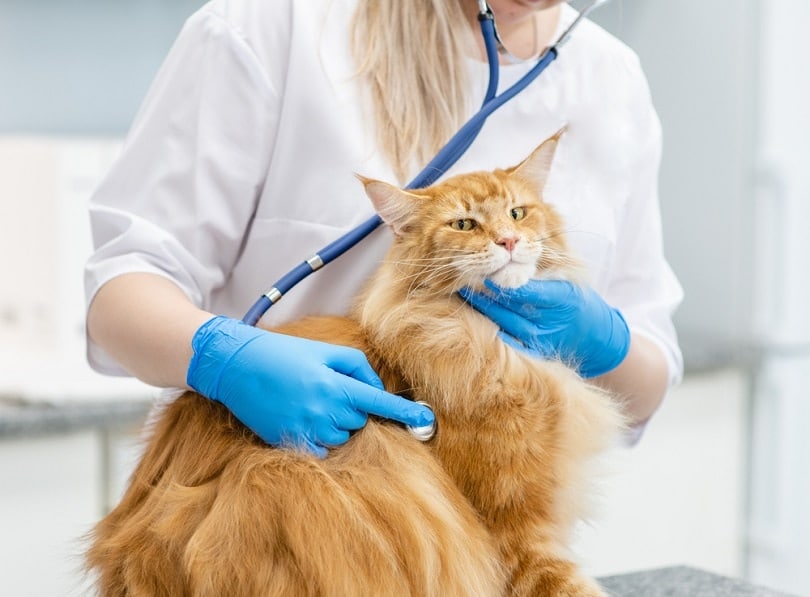
- Standard Vet Procedures by Region
Source: https://www.banfield.com/Services/price-estimator
- Additional Costs
In addition to the basic service options, we can address other specific services, so you have a ballpark idea of how much each may cost.
- Tooth Extractions
One or more of your cat’s teeth may need to be extracted due to problems such as crowding, fractures, or an abnormal bite that affects their ability to eat food. Tooth decay and disease can also result in the need for an extraction.
The cost of tooth extraction for cats can be anywhere from $250 to more than $1,000, depending on the type of extraction and the types of medications and tools used during the extraction process.
- Geriatric Screening
Cats over the age of 7 should get regular geriatric screenings. This type of examination is more comprehensive than a wellness checkup and typically includes bloodwork, a urinalysis, and, if necessary, X-rays. Each geriatric checkup could cost between $75 and $200, depending on the services you choose to include in your cat’s geriatric package.
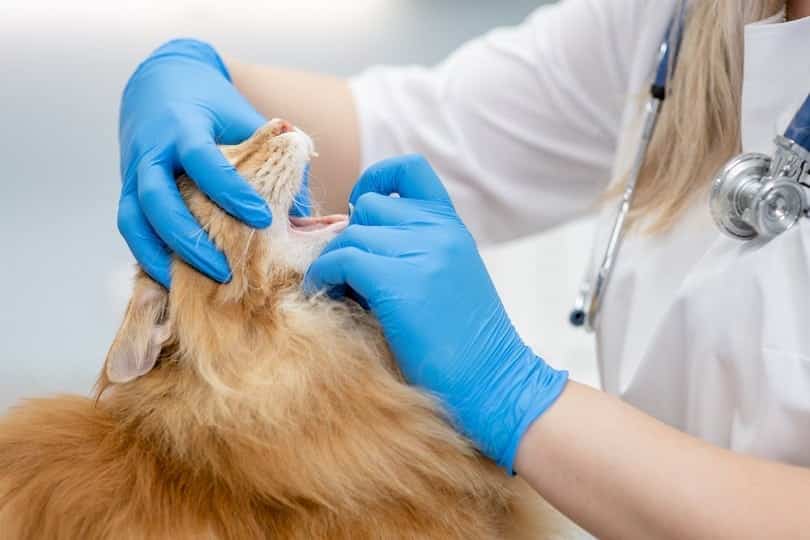
- Allergy Treatments
Allergy treatments involve more than just prescribing medication. Your veterinarian will have to test your cat for allergies to figure out what is causing their allergic reactions. Once a cause is determined, they can determine the best course of action to help your cat avoid or fight off the cause of their allergies. Therefore, you can expect allergy treatments for your cat to cost between $300 and $1,000.
Cats are susceptible to becoming infected with intestinal worms, especially if they spend any of their time outdoors. Unfortunately, multiple parasites could find a home in your cat’s body. These include roundworms, hookworms, and tapeworms.
Luckily, your cat can be treated for worms at the vet’s office. Your vet will first do a fecal test to determine exactly what type of worms your cat’s infested with, which can cost between $30 and $80. Medication to treat the worms should cost less than $25.
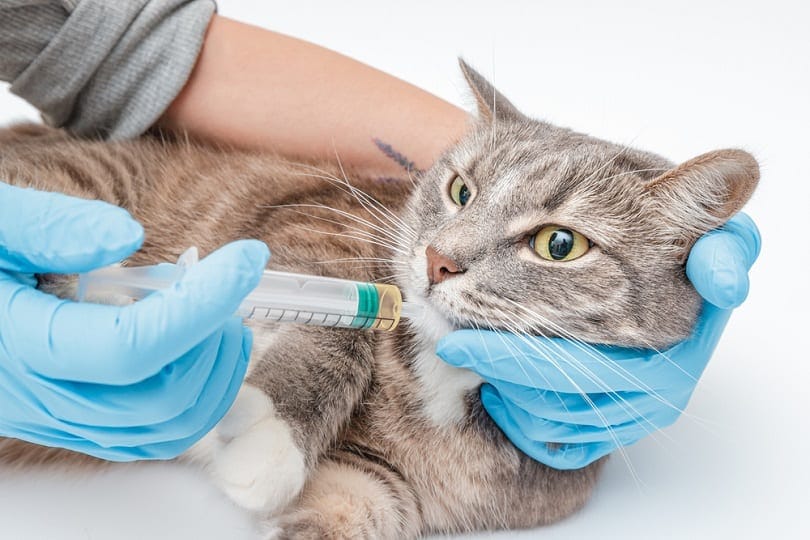
- Eye Surgery
If your cat develops cataracts, develops cherry eye, or has entropion, they may require eye surgery. Unfortunately, no type of eye surgery is inexpensive. For example, removing cataracts and completing similar procedures could cost up to $3,000. The average cost of less invasive and laborious eye surgeries is about $1,400.

- What to Expect Financially From an Emergency Vet Visit
You never know when you might need to take your cat in for an emergency visit, whether because they get injured, become ill, or ingest something they should not. The cost of just walking in the door to see a vet due to an emergency is between $75 and $150. However, costs do not stop there. Depending on the situation, you could face charges for one or more of the following services.
- Diagnostics
Diagnostic tests can include blood work ($75–$200), an X-ray ($150–$250), and an ultrasound ($300–$600). Overall, you could be looking at anywhere from $75 to $1,000 for diagnostics alone.
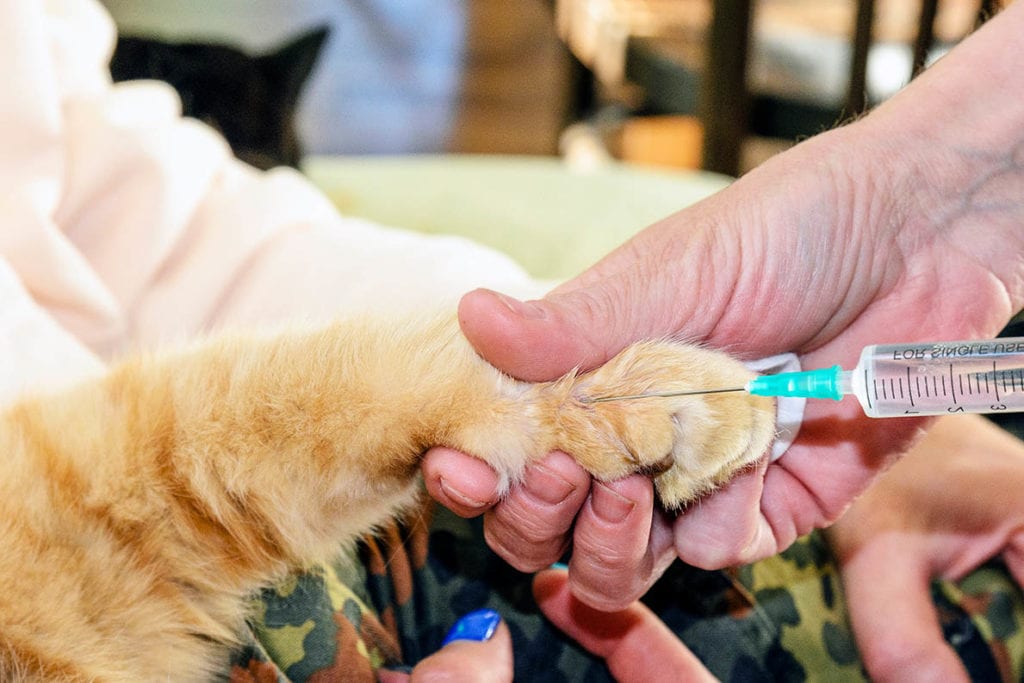
- Hospitalization
Twenty-four hours of hospitalization for your cat could cost upward of $1,500, not including any treatments or services rendered during that time. The longer your cat must stay hospitalized, the less expensive each day of hospitalization becomes. So, if your cat is hospitalized for five days, you could pay about $3,000.
Being hit by a vehicle, developing bloat, or ingesting a foreign body are just a few reasons your cat would need emergency surgery. While there is no way to know exactly how much surgery will cost until you know the reason, you can expect to pay between $1,500 and $4,000.

- Which Vet Bills Do Pet Insurance Companies Cover?
Many companies sell pet insurance to help cover the costs of veterinarian services your cat receives throughout their life. Most pet insurance companies cover a percentage of the bill for emergency , accident, and sudden illness vet services in exchange for you paying them a monthly premium. For an extra monthly fee, some insurance companies will cover the costs of preventative care, including wellness exams, deworming, and flea treatments, minus a deductible.
Most companies offer reimbursement plans, which means that they will pay you back after you pay for the veterinarian services yourself. However, depending on the insurance company and the vet you are working with, you may be able to score a plan that does not require you to pay for services out of pocket.
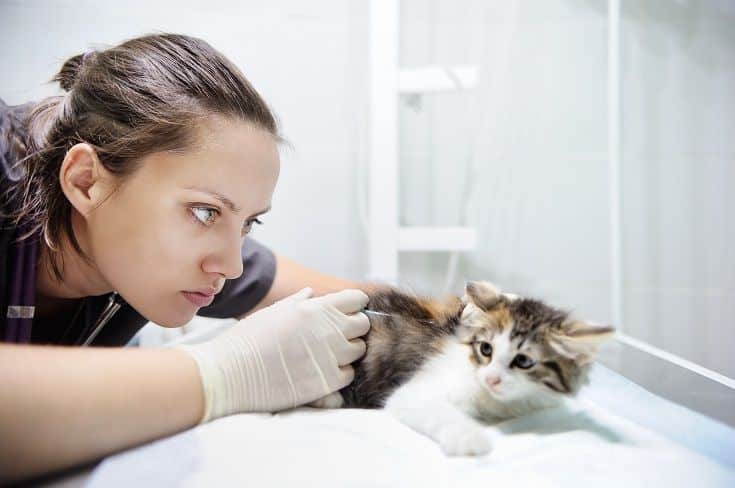
- How Often Should I Take My Cat to the Vet?
Kittens and cats should see a veterinarian once a year for a wellness checkup and any required vaccinations. Flea and deworming treatments can be done at home and require nothing more than a quick stop to pick medications up from the vet when necessary (usually monthly for regular flea treatments).
Once your cat reaches the age of 7, your veterinarian may suggest that you come in for wellness checkups twice a year, as changes in a senior cat’s health can happen quickly.
Veterinarian care for a cat is not cheap, but it is necessary. Your cat cannot experience a happy, healthy, high-quality life without regular checkups and proper vaccinations. Even cats that live exclusively indoors need to be vaccinated, as they are not completely protected from a disease that thrives outside. We hope that our guide helps prepare you for any veterinarian visits that you make with your cat in the future.
- North West Animal Eye
Featured Image Credit: Stock-Asso, Shutterstock
About the Author
Rachael Gerkensmeyer
Rachael has been a freelance writer since 2000, in which time she has had an opportunity to research and write about many different topics while working to master the art of fusing high-quality content with effective content marketing strategies. She is an artist at heart and loves to read, paint, and make jewelry in her spare time. As a vegan, Rachael is obsessed with helping animals in need both in her community and anywhere in the world where she feels she can make a difference. Animals also happen to be her favorite topic to write about! She lives off the grid in Hawaii with her husband, her garden, and her rescue animals including 5 dogs, a cat, a goat, and dozens of chickens.

10 Pet-Friendly Hotels in St. George, Utah (2024 Update)

Does Health Monitoring Cat Litter Work? Vet Reviewed Facts & FAQ
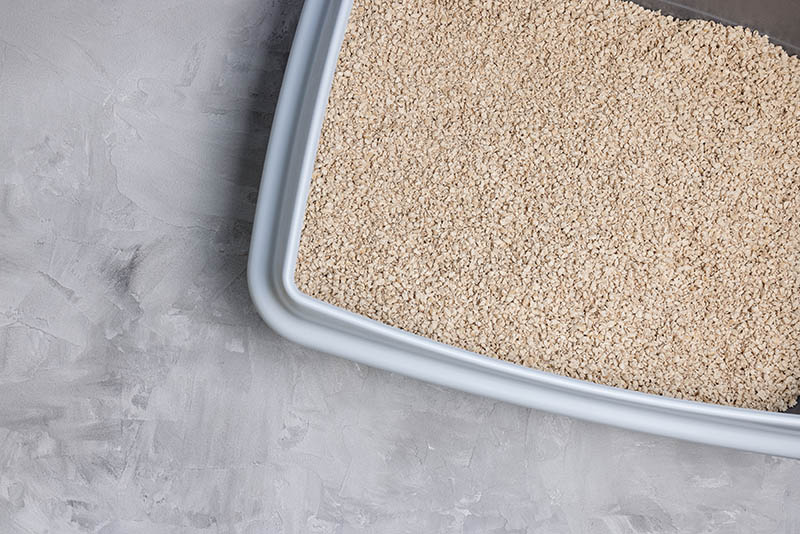
Can You Use Kitty Litter for Oil Spills? Alternative Uses, Tips & Tricks
Get catster in your inbox.

The Cat and the Oven Mitt: Odd Items that Cats Love

Telepathic Communication With Your Cat: How Olga Anticipates My Actions
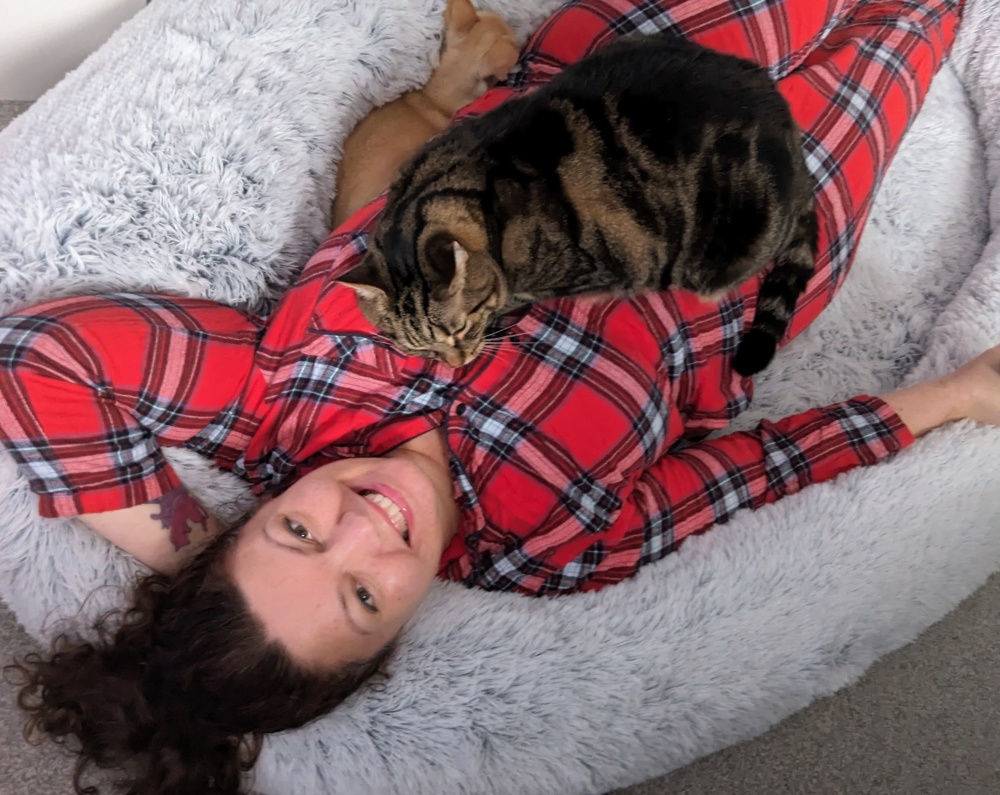
Cat Logic: I’ll Sleep Anywhere But There (with Video)
© pangolia pte. ltd. all rights reserved..


Kitten’s First Vet Visit: Everything You Need To Know
by Linda | Dec 1, 2023 | 4 comments
Last Updated: 4 months ago
Now that you’ve adopted a new feline friend , it’s time for a checkup! Today, we’re talking about what you need to know about your kitten’s first vet visit.
It’s so important to get your new kitty checked out and vaccinated as soon as possible, especially if you have other cats in the house.
1. Scheduling the Vet’s visit
2. preparing for the vet visit, 3. what to expect when you arrive, 4. what to expect from the physical exam, 5. what lab tests will your kitten need, 6. schedule your kitten to be spayed or neutered, what to expect after the vet visit, kitten’s first vet visit instructions.

A visit with your veterinarian will help ensure your kitten grows up happy and healthy.
Here are some things you need to know about that first visit:
You should schedule your kitten’s first visit to the vet within 3–4 days of adoption.
If you are adopting your kitten from a pet shelter, it is likely they have already been given a physical exam as well as their vaccinations .
However, it is a good idea to schedule a visit with your veterinarian anyway.
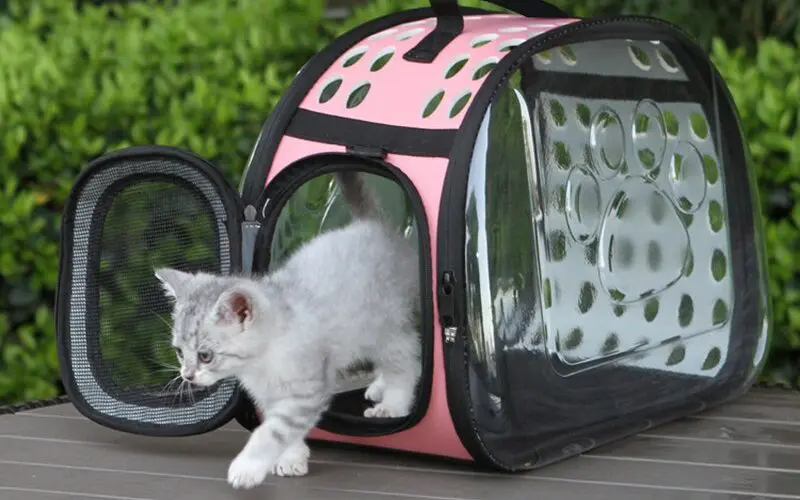
Preparing for your kitten’s first vet visit involves gathering essential items.
Bring your kitten’s health records, including vaccination history and any information from the breeder or shelter.
The day before your kitten’s vet appointment, you will want to contact the office to confirm the date and time.
Also, inquire as to any special instructions they might have for you, such as providing a stool sample from your kitten or not giving them any food after midnight.
A comfortable carrier is crucial for a stress-free journey to the vet. Pack a favorite toy or blanket to provide familiarity and reassurance during the visit.
Once you arrive at the office for your appointment, you will have to fill out paperwork about your kitten, such as their age, sex, known medical issues, etc.
Be sure you have all of the documentation you were given upon adopting your kitten.
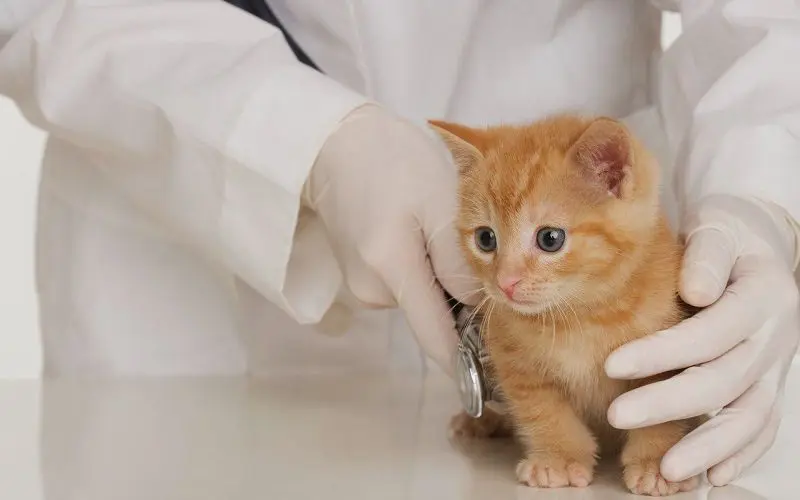
Once you are called into the examination room, your kitten will first have some preliminary work done by a veterinary technician.
This will include things like getting a rectal temperature and checking their heart rate.
Once the veterinarian comes in, they will first do a complete physical examination, which includes checking their eyes, ears, and teeth; listening to their heart and lungs; and examining their genitals, abdomen, joints, and skin.
Next, they will be given a round of vaccinations designed to protect them against feline calicivirus, herpesvirus, and feline panleukopenia.
Lastly, the veterinarian will check your kitten for parasites like hookworms, tapeworms, and roundworms. This is done with a stool sample, so if you weren’t asked to bring one in, one will be collected.
Lab tests play a crucial role in evaluating your kitten’s health status.
Your veterinarian may recommend blood tests to check for common feline diseases , ensuring early detection and timely intervention if necessary.
Fecal tests help identify internal parasites, and urine tests can provide insights into kidney function.
These tests contribute to a comprehensive understanding of your kitten’s health and assist in formulating a personalized care plan.
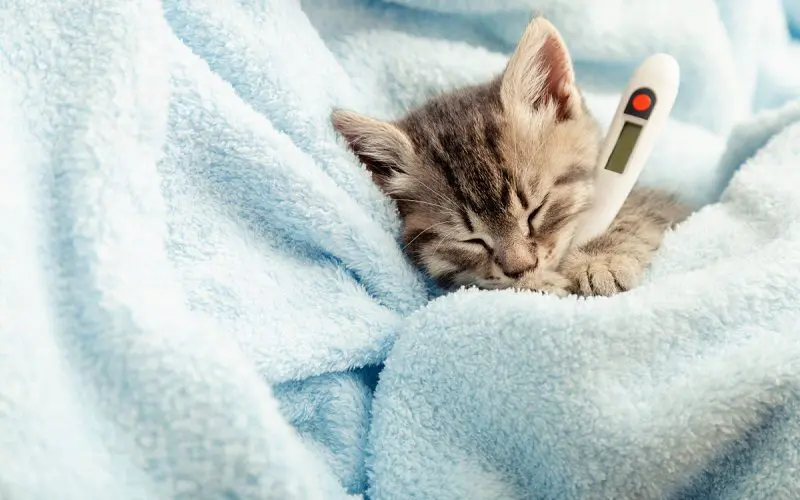
Ensuring the long-term health and well-being of your new feline friend involves scheduling a spaying or neutering procedure .
This critical step not only prevents unwanted litter but also contributes to a healthier and more behaviorally balanced pet.
Consult your veterinarian to discuss the appropriate age for the procedure and the associated benefits for your kitten’s overall health.
After the vet is done, he will let you know when to bring the kitten back in for another round of vaccinations, usually about a month later.
Monthly vaccination visits will continue until your kitten is around five months old , at which point vaccinations are done on a yearly basis.
Are you already a pro at cat parenting? Let us know if you have anything else to add to what you need to know about your kitten’s first vet visit!
- VCAHospitals.com

Dr. Linda Simon MVB MRCVS is a locum veterinary surgeon who has worked in London for the past 8 years. She graduated top of her class in small animal medicine from UCD, Dublin. She is currently a member of the Royal College of Veterinary Surgeons. Linda is the resident vet for Woman magazine and a frequent contributor to People’s Friend Magazine, the Dogzone website, Vet Help Direct and Wag! Linda also writes content for the CVS veterinary group, Vetwriter and a number of other establishments.
We have four cats of our own and their first vet visits seem like such a distant memory. I remember with our second cat we were in the process of choosing a new vet in a different town. He purred his way through the entire visit. His instincts were right on the money .. our vet is a true gem
These are all good tips! I would only add to get the kitten used to the portable bag you are using to take her there since not all of them like it very much!
I want to get a kitten and had no idea of what to expect from my first visit so I want to bookmark this post. I like that they get vaccinations which would be a relief x
These are all great tips for all cat owners. I don’t have a cat at the moment but I am planning on getting a kitty very soon, so your tips are more than welcome. Thanks.
Submit a Comment Cancel reply
Your email address will not be published. Required fields are marked *
Save my name, email, and website in this browser for the next time I comment.
Must-Have Cat Essentials
- Cat Litter Box
Top-Rated Cat Foods
- Dry Cat Food
- Wet Cat Food
- Kitten Food
- Countertops
- Curb Appeal
- Dining Rooms
- Entryways & Mudrooms
- Foundations
- Heating & Cooling
- Home Finances
- Home Offices
- Home Safety
- Inspections
- Kids' Rooms
- Landscaping
- Laundry Rooms
- Living Rooms
- Molding & Trim
- Natural Disasters
- Pathways & Sidewalks
- Pest Control
- Smart Homes
- Solar & Alternative Energy
- Storage & Organization
- Woodworking
- This Old House
- Ask This Old House
- New Yankee Workshop
- Project Houses
- Idea Houses
- Live Channel
- TV Listings
- Ways to Watch
- Best Gutter Guards
- Best Home Warranty
- Best Lawn Care
- Home Services Near Me
- Best Moving Companies
- Best Solar Companies
- Newsletters
- Makers Channel
What Is the Typical Cost of a Vet Visit?
What should you expect at a vet visit, annual checkup, diagnostic testing, ear or eye issues, emergencies, spaying or neutering, vaccinations, does pet insurance cover vet visits, is the cost of vet visit worth it, faqs about vet visit costs, how much does a vet visit cost (2024 guide).
By Brenda Woods Fact Checked Updated 04/03/2024
Brenda Woods is an accomplished managing editor with more than two decades of publishing experience. She has spent the last several years covering home services and home improvement projects. Brenda supports her team in evaluating dozens of home service providers, surveying and speaking to homeo…
Pets need health care, and not just when they’re sick. Regular vet visits are essential to keeping your pet healthy and should be factored into your budget just like food and toys. How regularly you need to take your pet to the vet depends on its age, breed, and health, but most vets recommend at least once per year.
So how much will vet visits cost you? It depends on the reason for the visit. We looked at common vet bills from some of the best pet insurance companies to see how much different types of vet visits typically cost. See what you can expect to pay below.

The average cost of a vet visit is $50–$200, but certain tests and treatments will increase the price. It also depends on the level of care you choose, such as whether you opt to have anesthesia administered for procedures or take your pet to multiple specialists. A basic vet visit involving a brief, noninvasive assessment of your pet will cost closer to $50. A more thorough evaluation will cost more.
A vet visit is any instance in which you take your pet in to see a veterinarian. This could be for routine reasons or more dire circumstances, but there are some things most vets will do at almost every appointment:
- Administer flea, tick, heartworm, and other parasite prevention if needed
- Assess weight
- Check lymph nodes and throat
- Evaluate teeth
- Examine the eyes for redness
- Listen to the heart and lungs
- Look into the ears and nose for abnormalities
- Palpate the abdomen to check for masses or pain
- Take pulse and temperature
This evaluation will give your vet a good indication of your pet’s physical health. You’ll likely be asked questions about your pet’s behavior and have the chance to ask your own questions and share concerns. If you’ve come to the vet for a specific issue, your vet will make evaluations and administer treatment based on that condition.
What Are Reasons for Going to the Vet?
There are many reasons to take your pet to see a veterinarian. Here are some of the most common.
Vets recommend a yearly exam—twice yearly for senior pets—to make sure your pet’s health is on track and administer any preventive care your pet may need. A full physical can run anywhere from $100–$300 for dogs and $90–$200 for cats, depending on its age, breed, and location. The more testing your pet requires, the higher the price will be.
Pets experience allergies, too. Coughing, excessive licking, scratching, and sneezing are all signs your pet is dealing with allergies. A vet will likely conduct a skin test to determine what kind of allergy your pet has and make a treatment plan. This type of visit will likely cost $200–$250, or $200–$300 if a blood test is needed.
Diagnostic testing is necessary when you don’t know what’s going on with your pet. This can include blood work, MRIs, ultrasounds, urine tests, and X-rays. You should ask your vet in advance how much these tests will cost, but here are the average ranges:
- Blood work: $200–$300
- MRI: $1,500–$2,500
- Ultrasound: $300–$600
- Urine test: $25–$100
- X-ray: $75–$400, depending on the complexity
Eye and ear infections are common in pets. It could be due to bacteria, mites, yeast, or an unnoticed injury. A vet will examine the area, determine the cause, and recommend treatment, which may include a prescription. As long as the issue doesn’t point to a more serious health condition, this visit will typically cost $120–$150.
An emergency is the worst reason to have to see a vet. Thankfully, there are 24/7 emergency vet clinics and animal hospitals you can take your pet to if it experiences a serious injury or shows signs of illness. Just like with humans, going to an emergency clinic costs more. Here are the most common expenses:
- ER exam: $75–$200
- Overnight hospitalization: $600–$1,700
- Multi-night hospitalization: $1,500–$3,500
Spaying and neutering costs vary depending on the kind of veterinary care you want for your pet. Anesthesia, IV fluids, pain medication, and other add-ons will increase the price. Spaying also costs more than neutering because the procedure is more complex. Standard clinics charge $200–$400 for dogs and $50–$4,200 for cats.
Vaccinations are an important part of your pet’s health care. Core vaccinations should be administered in your pet’s first year of life based on the schedule your vet outlines. Your pet may need boosters as it ages.
Here are common vaccines and their costs:
- Bordetella: $19–$50/dose
- DAPP or DHPP: $25–$50/dose
- Feline leukemia: $25–$50/dose
- FVRCP: $25–$50/dose
- Influenza: $30–$50/dose
- Leptospirosis: $30–$50/dose
- Lyme disease : $30–$50/dose
- Rabies: $15–$50/dose
What Factors Affect the Cost of Vet Visits?
How much vet visits cost can vary depending on a few factors. Here are some of the most common.
Pet insurance can greatly offset veterinary costs and will cover most visits. Though routine checkups are rarely covered in basic accident-and-illness plans, diagnostic testing, emergency care, hospitalization, prescription medications, surgeries, and more are. Many providers offer wellness plans to cover preventive pet care, such as annual visits, for an extra monthly fee.
If you have a pet insurance plan, you’ll pay for your pet’s vet visit at checkout, then file a claim for that amount and get reimbursed by your provider within a couple of weeks. Most providers reimburse at least 70% of the vet bill, and some will reimburse as much as 100%.
We recommend pet insurance providers such as Lemonade , Spot , and Healthy Paws for their coverage and customer service.

If your pet needs care, the most important thing is to get to a vet as soon as possible. Being faced with a bill of $300 or more can be daunting, but visiting a vet clinic in a less metropolitan area can reduce the cost. We recommend that pet parents enroll their pet in a health insurance plan to prevent paying for vet bills out of pocket.
See our list of cheapest pet insurance companies for affordable options.
How much do most vet visits cost?
Routine vet visits typically cost $50–$300, depending on the evaluations and treatments performed. Emergency vet visits can run as high as a few thousand dollars.
Why does the vet charge so much?
Vet prices are high for various reasons. Vets set their rates based on their medical education and credentials, how complex the exam or procedure they’re performing is, your location, the use of expensive equipment, and other variables that warrant or require high fees.
How often should a dog go to the vet?
Healthy adult dogs should see a vet once per year for a routine wellness exam. Senior dogs should see a vet twice per year.
What are the most common vet visits?
Pet owners most commonly take their pets to the vet for routine care such as annual checkups, dental cleaning, vaccinations, and other preventive care. Other common reasons to take your pet to the vet are allergy testing, ear or eye infections, or illness or injury.


- For Consumers
- How It Works Prospective Cardholders Existing Cardholders
- Categories Animal/Pet Care Cosmetic Dentistry Vision More Healthcare Services
- Find a Location
- Resources FAQs Payment Calculator Pay a Doctor or Provider Well U Blog Testimonials & Reviews Financial Glossary
- For Providers
- How It Works
- Industries Healthcare & Wellness Health Systems & Hospitals Animal Healthcare
- Resources Insights Tools Partnerships FAQs
- Our Partners
- Back to Veterinary Financing
How Much Does a Vet Visit Cost?
Average veterinary pricing by procedure.
When your dog, cat, or other pet needs to see the vet, there are a variety of factors that can impact the total price of your final bill. Below, we'll explore some of the common reasons your pet may need to see a veterinarian, as well as the average costs for routine checkups or specialty treatments and procedures.
When to Take Your Pet to the Vet
Your pet may need to see a vet for many different reasons, and how much it costs depends on the type of vet visit. Common reasons to take a pet to the vet include:
- • Routine checkups : Routine veterinary exams are similar to human physicals. They're meant to help keep your pet healthy by assessing their overall wellness, treat any ongoing conditions, and follow up on any concerns you may have.
- • Vaccinations : You may have to set up a series of appointments to make sure your pet gets the properly scheduled vaccination shots to help prevent conditions like rabies and Bordetella.
- • Illness : Maybe your pet isn't drinking much water, or they're throwing up. You'll want to take them in for a sick visit, where your vet will check their baseline health and may recommend running some tests to figure out what's going on.
- • Emergencies : There may be a time that you're pet needs immediate medical attention, which means an emergency vet visit. Emergency visits can mean the difference between life and death, and you can expect that the cost of an emergency vet visit will be higher due to specialized equipment and treatments. 1
- • Surgical/Specialty visits : You may need to see a specialist to set up surgical procedures like spaying or neutering , dental extractions , fracture repairs, foreign object removal , or cancer -related surgery or chemotherapy treatment .
National Average Cost for a Vet Visit
The national average cost for a routine vet visit is between $25-$186. 2 During a routine veterinary appointment, your vet will perform a physical exam to assess your pet's health. The vet will likely check for:
- • Vitals : heart rate, breathing, temperature, weight
- • Signs of infection : ears, eyes, nose, mouth
- • Parasites : coat and skin
Average vet visit cost by state*
* To see all the states click here .
Routine Veterinary Exam Costs by Procedure
A routine veterinary exam is a good time to discuss any concerns you may have about your pet's health and to get preventive treatment for common health issues.
Dog and Cat Vaccine Pricing Info
On average, vaccinations for dogs and cats will cost between $20-$60, and can help protect them from catching serious diseases, like rabies. 4
Vaccination cost for dogs
Here are the average costs of some common vaccinations your dog may need:
Vaccination cost for cats
Here are the average costs of some common vaccinations your cat may need:
Veterinary Tests and Diagnostic Costs
You'll want to set up a special appointment with your vet if you think your pet is sick ( or worse ). For example, the following are symptoms your pet may exhibit which could require further evaluation, tests, and diagnosis from your veterinarian: 6
- • Increased thirst
- • Changes in appetite
- • Increased urination
- • Lethargy or tiredness
- • Panting
- • Coughing or sneezing
- • Weight gain or loss
- • Body odor
- • Breathing rate
- • Whining
- • Coat or skin changes
- • Behavior changes
If your pet is exhibiting signs of an illness, your vet will likely want to run some tests to help determine what's going on. They may require things like blood tests, X-rays, or fecal exams. 3
Once your vet has the results, they will provide a course of treatment to address the cause of your pet's symptoms and hopefully help your fur baby feel better.
Below is the average cost of diagnosing and treating some common health problems your pet may experience.
Emergency Vet Care Costs
An emergency veterinarian visit is an unscheduled trip to the vet to get help for your pet in an urgent or critical situation. There are many reasons you might need to take a pet to see an emergency veterinarian, such as: 8
- • Trauma : Bite wounds, electrical shock or being hit by a car
- • Toxins : When you know you're pet has consumed foods or chemicals that are poisonous, like antifreeze, human medications, chocolate, insecticides, certain plants and other toxic substances a visit to the emergency vet may be needed.
The price of an emergency vet visit will depend on the situation, but you can anticipate that it will be more expensive than a routine visit due to specialized care and testing. Below are the costs for initial assessment, stabilization, and treatment.
Surgery and Specialty Treatment Costs
If your pet has an underlying condition, or something is discovered as a result of testing during a wellness check, your vet may recommend specialized treatment. The cost of these treatments ranges widely depending on the type of care needed and the type of animal.
We've outlined some common treatments and average associated costs below:
Average Vet Visit Cost by State (Continued)
The information, opinions and recommendations expressed in the article are for informational purposes only. Information has been obtained from sources generally believed to be reliable. However, because of the possibility of human or mechanical error by our sources, or any other, Synchrony and any of its affiliates, including CareCredit, (collectively, “Synchrony") does not provide any warranty as to the accuracy, adequacy, or completeness of any information for its intended purpose or any results obtained from the use of such information. The data presented in the article was current as of the time of writing. Please consult with your individual advisors with respect to any information presented.
© 2023 Synchrony Bank.
1 Lee, Justine. “When to Bring Your Pet to the ER Vet,"Animal Emergency and Referral Center. Accessed January 20, 2023. Retrieved from: https://aercmn.com/when-to-bring-your-pet-to-the-er-vet/
2 Average Pet Wellness Check Study by State, Conducted by ASQ 360 ° on behalf of CareCredit, August 2023.
3 Plotts, Edwin. “How Much Does a Vet Visit Cost? Here's Everything You Need To Know," Pawlicy Advisor. Accessed January 20, 2023. Retrieved from: https://www.pawlicy.com/blog/vet-visit-cost
4 “Veterinary Services & Pricing," Access Veterinary Care. Accessed January 20, 2023. Retrieved from: https://www.myaccessvetcare.com/veterinary-services
5 Batiari, Lila. “Puppy Deworming Schedule: Everything You Need to Know," PawlicyAdvisor. Accessed January 20, 2023. Retrieved from: https://www.pawlicy.com/blog/puppy-deworming-schedule/
6 “How to tell if your cat is sick: Signs and Symptoms," Hillcrest. Accessed January 20, 2023. Retrieved from: https://www.hillcrestanimals.com/site/blog-memphis-vet/2020/03/12/how-to-tell-if-your-cat-is-sick
7 Drexler, Abby. “How to Tell if Your Dog is Sick: 11 Common Symptoms," American Kennel Club. January 24, 2022. Retrieved from: https://www.akcpetinsurance.com/blog/5-common-signs-that-your-dog-is-sick
8 Croll, Maxime. “Average Cost of Pet Insurance: 2022 Facts and Figures," Value Penguin. March 1, 2022. Retrieved from: https://www.valuepenguin.com/pet-insurance/average-cost-of-pet-insurance
10 “Pet Emergency Statistics and Veterinary Costs," Preventative Vet. Accessed January 20, 2023. Retrieved from: https://www.preventivevet.com/pet-emergency-statistics
11 2023 Average Procedural Cost Study for Cosmetic, Dental and Veterinary Practices across the United States. ASQ360° Market Research, October 2023
12 “Cutting Pet Care Costs," ASPCA. Accessed July 7, 2022. Retrieved from: https://www.aspca.org/pet-care/general-pet-care/cutting-pet-care-costs
Looking for pet costs not covered here?
Learn more about pet care and veterinary costs in Well U.
Have you used CareCredit to pay for your family's Veterinary care?
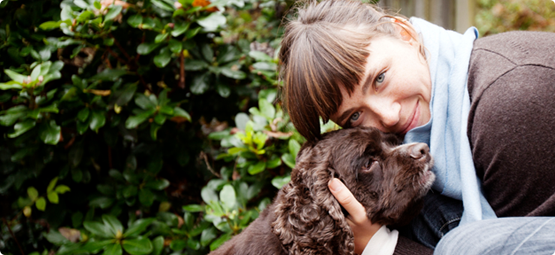
Tell us how you plan to use the card
Didn't find what you need? Use the search!
Pet Keen is reader-supported. When you buy via links on our site, we may earn an affiliate commission at no cost to you. Learn more .
Vet Visits for Cats: How Much Will it Cost? 2024 Price Guide
Taking your cat to the vet for regular treatment and care is essential to the well-being of your pet. The primary variables we consider as consumers are how often and how much will it cost? But it’s important to remember that not all vet visits will be the same . The general rule for regular checkups is 1-2 per year. If your furry friend has other health issues, you may be at the vet much more frequently.
Unfortunately, and all too often, we pack our beloved felines into the travel carrier for a trip to the vet, which we all hate—let’s face it—and we don’t have any idea how much it’s going to cost.
We all love our cats, but regular checkups at the vet can lead to a high cost over the lifetime of your pet. If you have never had a cat before, it can be helpful to get an idea of the basic costs so you can be prepared. Keep reading as we break down the scenarios of the most common reasons for vet visits and give you an idea of how much each will cost. Some of these reasons include:
- Regular checkups
- Vaccinations
- Neuter or spay
- Deworming/flea treatment
Of course, prices for veterinary services may vary from city to city, state to state, and region to region. So, we’ve split the country up into east, west, and central United States, so the numbers will be a little more accurate.
How Much Does It Cost to Take My Cat to the Vet?
The cost of your vet visits will depend heavily on what type of visit it is and where you live. The eastern and western United States are much more densely populated than the center so you can expect to pay more in these areas, and the west will be slightly more than the east. However, the higher population and increased costs also mean a better chance your doctor will have better equipment and more experience. In the central states, especially where the population is more sparse, you will often save a few dollars.
- What Can I Expect When I Get to The Vet?
You will need to keep your cat in a carrier at all times when in the clinic because other animals can increase your pet’s stress level and may even chase them. You will need to sign in when you arrive and usually need to spend a few minutes in a small waiting area like you do at a regular doctor visit. After a short time, the vet will call you into the back and usually begins the examination by weighing the cat while still in the carrier. The vet will then remove the cat from the carrier and weigh the carrier again to get the correct weight of the cat.
Once your vet has the cat’s weight, they will continue the examination by checking the ears for signs of infection and parasites. Ear mites will look like a clump of black dirt or coffee grounds. The doctor will also need to check the eyes and mouth and ensure adequate flexibility in its limbs and joints, and they will also push on the stomach to feel for any lumps or signs of pain. If your cat is still a kitten, your vet may give vaccination shots. Following your appointment, you might need to schedule more appointments for additional vaccinations or routine checkups. It’s also a good idea to purchase your flea and tick medication, which also helps protect them from heartworm, even if it is an indoor cat.
The following chart will explain how much it might cost for different procedures in different parts of the country.
- Standard Vet Procedures by US Regions
Source: https://www.banfield.com/Services/price-estimator
- Additional Costs
The chart above gives you the most common expenses, but you may end up with additional costs as well. Some may be elective, and others will only occur once. Here are a few examples of some extra procedures that some cats may require.
- Tooth Extraction: $50 to $130
- Geriatric Screening: $200 to $250
- Blood Tests for Allergies in addition to Standard Bloodwork: $300 to $400
- Fecal Exam: $25 to $40
- Heartworm: $50 to $150/year
- What Does an Emergency Vet Visit Cost?
Some cats are accident-prone, so it will be no surprise if they have an emergency that requires immediate medical attention . If it’s during business hours, you shouldn’t need to pay much extra for a visit unless the doctor is extremely busy. However, you will likely incur some additional expenses depending on the emergency.
- X-rays can cost between $150 and $250. You will usually need X-rays if your cat swallows a sewing needle or other foreign object. Vomiting, diarrhea, and seizures might also cause your vet to call for an X-ray.
- Ultrasounds are a little more expensive and can cost as much as $300–$600. Ultrasounds are often elective, and you might choose to get one if your cat is pregnant to see how many kittens you will have.
- Your veterinarian might recommend a hospital stay of 1–2 days if your cat suffers from severe diarrhea or vomiting. If your cat recently began having seizures , your vet might recommend a short hospital stay for observation. You can expect to pay $600 to $1,500 for a short stay.
- If your cat has a more serious problem, like fecal impaction, kidney failure, or another serious issue, your vet might recommend a longer stay of 3–5 days. These longer observation times usually start at around $1,500 and can get as high as $3,000 depending on the required care level.
- If your cat gets a wound in a fight that requires cleaning and stitching, you can expect to pay $800–$1,500 for the emergency visit, numbing, stitching, and medication, depending on the extent of the injury.
- If your cat requires emergency surgery because of an injury caused by a motor vehicle, you can expect to pay at least $1,500 up to $3,000. The extent of the damages will greatly influence the cost, and you may have additional fees after the operation to get your cat back to good health.
- If your pet is having difficulty breathing due to asthma or heart failure and requires oxygen, you can expect to pay between $500 and $2,500 for the service, depending on how many treatments it requires.
- Can Pet Insurance Help Me Pay for Vet Bills?
Pet insurance can be a great way to protect yourself against high medical bills that can occur unexpectedly during the life of your cat, but many people ignore this option. It will usually cost between $25–$35 per month to keep your cat covered. It can seem like a lot of money, but if your cat requires hospitalization, you will be glad you don’t have to pay out of pocket. In many cases, not being financially capable of paying for treatment can result in the death of your pet.
When you have insurance, you will usually file a claim with your company online and tell them about the vet visit, injuries, and costs incurred. The insurance company will then contact your vet and process your claim before sending you a reimbursement check.
- How Often Should My Cat Visit the Vet?
Your kitten will need to visit the vet every month until at least 4 months old to get all of the required shots and vaccinations. You should consider spaying and neutering at 6 months, and your pet will need to visit again at 1 year for a checkup. After the age of 1, your cat will be an adult and should see a doctor every 6 months to 1 year for another checkup until they are about 7. After 7, your cat is a senior and should see a vet twice a year to detect any problems as early as possible.
You may also be interested in:
- What Is the Average Cost of a Vet Visit for a Dog?
- Can You Take a Stray Cat to the Vet for Free?
- What Is the Average Cost of an Overnight Vet Stay?
- Final Thoughts
The vet can be expensive, but cats are generally healthy and can live long lifespans with few problems in most cases. Manually brushing the teeth with a cat-safe toothpaste can help slow the progression of dental disease. Following the portion sizes listed on the packages closely can help keep your pet from becoming overweight, which leads to several health problems, including cardiovascular disease, kidney disease, and diabetes . Doing these two things will dramatically reduce your pet expenses, while owning insurance can protect you from a sudden loss, possibly in the thousands of dollars.
We hope you have enjoyed reading over your cat’s potential medical expenses and found the answer you needed. If we have helped you better plan for the future, please share this look into how much a vet visit costs for a cat on Facebook and Twitter.
Related read:
- Why Do Cats Purr? 6 Reasons Why & How They Do It!
- 11 Humane Ways To Keep Cats Out Of Your Flower Beds
- 6 Best Cat Bed for Older Cats — Reviews & Top Picks
Image Credit: Maria Sbytova, Shutterstock
Ed Malaker is a veteran writer who has contributed to a wide range of blogs that cover tools, pets, guitars, fitness, and computer programming. When he’s not writing, Ed is usually performing DIY projects around the house or working in the garden. He’s also a musician and spends a lot of time helping people fix their guitars and composing music for independent films.
Related articles
120 most popular cat names that start with t: terrific names for your feline friend, 6 diy cat cone collars you can make at home (with pictures).
Search our database of over 16698 posts with up-to-date information from our experts and veterinarians.
Want to talk to a vet online?
Whether you have concerns about your dog, cat, or other pet, trained vets have the answers!
- Best Extended Auto Warranty
- Best Used Car Warranty
- Best Car Warranty Companies
- CarShield Reviews
- Best Auto Loan Rates
- Average Auto Loan Interest Rates
- Best Auto Refinance Rates
- Bad Credit Auto Loans
- Best Auto Shipping Companies
- How To Ship a Car
- Car Shipping Cost Calculator
- Montway Auto Transport Reviews
- Best Car Buying Apps
- Best Websites To Sell Your Car Online
- CarMax Review
- Carvana Reviews
- Best LLC Service
- Best Registered Agent Service
- Best Trademark Service
- Best Online Legal Services
- Best CRMs for Small Business
- Best CRM Software
- Best CRM for Real Estate
- Best Marketing CRM
- Best CRM for Sales
- Best Payroll Services
- Best HR Software
- Best HR Outsourcing Services
- Best HRIS Software
- Best Performance Management Software
- Best Personal Loans
- Best Fast Personal Loans
- Best Debt Consolidation Loans
- Best Personal Loans for Bad Credit
- Best Home Equity Loan Rates
- Best Home Equity Loans
- What Is a HELOC?
- HELOC vs. Home Equity Loan
- Best Free Checking Accounts
- Best High-Yield Savings Accounts
- Bank Account Bonuses
- Checking Accounts
- Savings Accounts
- Money Market Accounts
- Best CD Rates
- Citibank CD Rates
- Synchrony Bank CD Rates
- Chase CD Rates
- Capital One CD Rates
- Best Hearing Aids
- Best OTC Hearing Aids
- Most Affordable Hearing Aids
- Eargo Hearing Aids Review
- Best Medical Alert Systems
- Best Medical Alert Watches
- Best Medical Alert Necklaces
- Are Medical Alert Systems Covered by Insurance?
- Best Online Therapy
- Best Online Therapy Platforms That Take Insurance
- Best Online Psychiatrist Platforms
- BetterHelp Review
- Best Mattress
- Best Mattress for Side Sleepers
- Best Mattress for Back Pain
- Best Adjustable Beds
- Best Home Warranty Companies
- American Home Shield Review
- First American Home Warranty Review
- Best Home Appliance Insurance
- Best Moving Companies
- Best Interstate Moving Companies
- Best Long-Distance Moving Companies
- Cheap Moving Companies
- Best Window Replacement Companies
- Best Gutter Guards
- Gutter Installation Costs
- Best Window Brands
- Best Solar Companies
- Best Solar Panels
- How Much Do Solar Panels Cost?
- Solar Calculator
- Best Car Insurance Companies
- Cheapest Car Insurance Companies
- Best Car Insurance for New Drivers
- Same-day Car Insurance
- Best Pet Insurance
- Pet Insurance Cost
- Cheapest Pet Insurance
- Pet Wellness Plans
- Best Life Insurance
- Best Term Life Insurance
- Best Whole Life Insurance
- Term vs. Whole Life Insurance
- Best Travel Insurance Companies
- Best Homeowners Insurance Companies
- Best Renters Insurance Companies
- Best Motorcycle Insurance
Partner content: This content was created by a business partner of Dow Jones, independent of the MarketWatch newsroom. Links in this article may result in us earning a commission. Learn More
How Much Does a Vet Visit Cost?

Elizabeth Kowalski holds a bachelor’s degree in biology from the University of Illinois and an associate’s degree in veterinary technology from Purdue University. After more than 10 years working as a certified veterinary technician, she chose to pursue veterinary writing, combining years of practical knowledge with a talent and passion for the written word. She has been featured in industry publications such as Today’s Veterinary Business . Elizabeth enjoys creating content for pet owners and veterinary professionals alike, and spends her free time playing sand volleyball and lounging at home with her pitbull, Piglet, and husband, Brenton.

Tori Addison is an editor who has worked in the digital marketing industry for over five years. Her experience includes communications and marketing work in the nonprofit, governmental and academic sectors. A journalist by trade, she started her career covering politics and news in New York’s Hudson Valley. Her work included coverage of local and state budgets, federal financial regulations and health care legislation.
The average cost of a routine veterinary checkup is $25 to $186 , based on research conducted by the MarketWatch Guides team. The actual cost will depend on the type of pet, where you live and the services your pet requires, such as vaccinations, blood tests, imaging, medications or other treatments.
Key Takeaways
The average cost of a routine veterinary checkup is $25 to $186, according to the pet financing experts at CareCredit . Emergency vet visit costs can range from $374 to $1,285. Connecticut has the most expensive routine vet costs, with an average bill of $93. The average cost of pet vaccinations ranges from $20 to $60.

5,534 pet owners requested and received a free no-obligation quote from one of the above companies in the last 30 days.
Average Veterinary Visit Costs by State
According to the American Pet Products’ (APP) National Pet Owners Survey , which uses data from 2023 to 2024, 66% of U.S. households own a pet, which equates to 86.9 million households. Whether you already have a pet or want to add a furry friend to your home, understanding how much a vet visit costs can help you prepare for expected — and unexpected — veterinary bills.
The actual cost will depend on the type of pet, where you live and the services your pet requires, such as vaccinations, blood tests, imaging, medications or other treatments.
The most basic veterinary service is an “office visit,” which includes a physical examination and veterinarian consultation to determine your pet’s care needs.
The following chart outlines the average office visit costs in each state across the country. This will give you an idea of local pricing, but your vet clinic may charge slightly more or less.
Emergency Veterinary Care Costs
According to a CareCredit study , the average annual pet health care costs — which include expected wellness expenses and sick pet and emergency care — range from $374 to $965 for cats and $534 to $1,285 for dogs. Unfortunately, you cannot always predict your pet’s health needs and certain diseases or conditions can cost extra thousands any given year.
We calculated expected care costs for common pet illnesses and injuries using claims data from several popular pet insurance companies . The chart below outlines costs for common pet illnesses and injuries:
What Impacts The Cost of a Vet Visit?
Veterinary costs depend on several factors, including where you live, your pet’s age, breed and if they have any pre-existing conditions. Generally speaking, mixed-breed pets may cost less to insure than certain purebreds with an increased risk of genetic diseases or specific breed-related problems, such as French bulldogs . Puppies, kittens and senior pets may also require special veterinary care that typically costs more than standard adult pet care.
Cats and dogs incur similar costs throughout their lifetime, although cats may cost slightly less because they are smaller, require fewer vaccinations and are less accident-prone. However, cats are not necessarily healthier than dogs and may incur significant vet bills for acute or ongoing medical conditions.

When To Bring Your Pet To The Vet
There are a few reasons that pets should visit the vet , including annual routine care visits and emergency care for accidents or illnesses.
Annual check-ups: It is recommended that pets visit the vet once a year for a routine wellness exam. During this exam, a vet will check for any developing health issues and ensure vaccinations are up-to-date.
Illnesses: If a pet displays symptoms like lethargy, changes in appetite or thirst, or physical changes, they may have developed an illness that requires a veterinary diagnosis and treatment. Making sure a sick pet receives veterinary attention gives it the best chance at recovery.
Accidents: Pet injuries resulting from events like falls, cuts or getting hit by a car may require immediate vet care like wound treatment or surgery. Having an emergency vet fund or pet insurance can offset high costs in these traumatic situations.
Specialty care or surgery: For complex health issues beyond a general vet’s expertise, pets may need referrals to dedicated specialists like surgeons, ophthalmologists, dermatologists or neurologists. These services provide focused treatment but typically cost more.
Other emergencies: Even with the best care, pets can experience emergencies like choking, heat stroke and toxin ingestion that require immediate veterinarian care. Preparing an emergency plan, including which veterinary office to visit, can help your pet get care quickly when in need.
What To Expect During a Veterinary Visit
Routine check-up exams.
Your pet should visit the veterinarian at least once per year for routine care, which costs an average of $50 to $80 for a cat or dog. Your vet will perform a nose-to-tail examination of your pet and discuss with you any abnormal findings and the benefits of additional treatments. Routine wellness examinations can detect health issues early before they snowball into larger problems. Common examples include:
- Dental disease
- Lumps or bumps
- Heart conditions
Vets often perform other wellness services, such as vaccines , parasite testing, microchipping or geriatric screenings, alongside a routine checkup. As a note, the cost of these services may vary and are not typically included in the price of a routine checkup.
Vaccinations
Vaccinations protect your pet from serious and sometimes deadly diseases that circulate among wildlife or other community pets. Puppies and kittens are most at risk for contracting these diseases because of their immature immune systems, but adults can also be affected.
A vaccine works by presenting your pet’s immune system with inactive versions of bacteria or a virus, so their system learns to fight future diseases. This immunity is crucial not only for pets but also for people since some diseases can be spread from pets to humans.
Most vaccines are administered as an initial series with two or three doses several weeks apart, and your pet is boosted with another single dose every one to three years, depending on the product. A single vaccine dose can cost from $20 to $60 .
Vaccination Costs for Dogs
You can break vaccinations down into core and non-core categories. Core vaccines are recommended, or required by law in some cases, for all pets. Non-core vaccines are recommended only for pets with specific lifestyle factors that increase disease risks, such as socialization with other pets or swimming in natural water.
The average cost of vaccines for dogs is summarized in the table below:
Vaccination Costs for Cats
Cats require different vaccinations than dogs, and generally receive fewer vaccinations overall. All cats — including exclusively indoor cats — need vaccinations to stay healthy. While vaccines sometimes caused tumors at injection sites in the past, the tumor-causing substances have been removed from modern, cat-specific vaccines.
The following table summarizes the average cost of cat vaccines :
Flea, Tick and Heartworm Prevention
Fleas and ticks are not only a nuisance for your pet and in your home, but also serve as vessels that can transmit dangerous diseases, such as Lyme disease or cat scratch fever, to you and your family. Heartworms are transmitted by mosquito bites and live in your pet’s heart and lungs. They can grow up to a foot long, causing inflammation, serious damage and sometimes sudden death.
Diseases that result from fleas, ticks and heartworms can be expensive and difficult to treat, which is why monthly preventive medications against all three parasites — typically combined into one or two separate products — are recommended for all pets. Currently, six months of protection from the three parasites cost around $150 for cats and up to $210 for large dogs.
Dental Care
Dental disease affects nearly all dogs and cats by 2 years of age, and causes difficulty eating, pain, loose teeth and bad breath. Similar to people, pets need regular professional dental cleanings, although pet cleanings must be performed under general anesthesia. Annual checkups and cleanings are ideal, but some pets may require more or fewer frequent visits.
Professional dental care costs vary depending on disease severity. A routine, preventive dental cleaning averages $300 to $500 , but pre-anesthetic blood work , tooth extractions, X-rays or medications may be extra.
Spaying and Neutering
Spaying and neutering are routine surgeries recommended for most pets to prevent reproduction and reduce cancer and other reproductive health problems. A spay surgery removes a female pet’s uterus and ovaries, and a neuter surgery removes a male pet’s testicles. Sterilization procedures average $200 to $600 .
In general, spaying is more expensive than neutering because the surgery is more invasive. Both procedures are less expensive in cats than in dogs. Shelters, rescues, your local ASPCA or low-cost community clinics may offer procedures at a lower cost than private veterinary hospitals.
The following table summarizes the average spay and neuter costs for dogs and cats:
Diagnostic Testing
Routine diagnostic tests that provide more information about internal health usually round out your pet’s wellness visit. Early organ function changes are generally not detectable on a physical examination, but diagnostic tests will help catch any changes. When compared year after year, annual diagnostic blood and urine tests allow your veterinarian to determine your pet’s baseline and watch for slowly trending values over time.
Typical costs for blood and/or urine tests are $80 to $200 for dogs or cats. Annual heartworm testing, which will run around $35 to $75 , is also recommended for dogs.
Medications
Routine medical issues, such as urinary tract infections, allergies, kennel cough or gastrointestinal (GI) upset, are often resolved with medications. Arthritis, thyroid disease or diabetes management may also require long-term medications.
For your convenience, most veterinarians stock medications in-house or provide an online pharmacy store. An independent pet or human pharmacy can also fill your pet’s prescription. Many larger pharmacies provide medications at a lower cost than private veterinary facilities because of their collective buying power.
Below are some common pet medications and their average costs, according to Chewy , a popular, competitively-priced online pet pharmacy.
Fecal Examinations
A fecal exam is the study of a small stool sample on a microscope slide, looking for and identifying eggs that would indicate intestinal parasite infestation. These tests can be performed at the veterinary hospital or sent to an outside veterinary laboratory. Puppies and kittens commonly harbor parasites that were passed in utero so they require several serial tests. Adult pets need fecal tests once or twice per year , depending on their exposure level to other pets.
Fecal tests are similar in pricing to heartworm tests, with an average cost of $35 to $75 .
Questions To Ask Your Pet’s Veterinarian
If you are looking for a lower-cost or new veterinarian, remember that pricing is set per practice and can vary widely. Plus, your decision should be based on more than cost, as lower costs sometimes equate to corner-cutting. A good veterinarian will discuss total costs with you upfront and provide you with a spectrum of treatment options, allowing you to choose the best option for your pet’s needs and your family’s budget.
Ask your veterinarian these questions to help you budget for your pet’s care:
- How much do you charge for an office visit?
- What vaccinations does my pet need?
- Does my pet need annual diagnostic tests?
- Which parasite preventives are best for my pet?
- How can I avoid unexpected pet health costs?
- Do you offer payment plans for surgeries or other large bills?
- How can I save money on my pet’s medications?
- How often should my pet visit for wellness care?
- Do you offer any promotions or discounts throughout the year?
How To Save Money on Veterinary Visits
Most pet owners consider their pets as family members and want to provide them with the best possible veterinary care. But this is becoming more difficult as vet care costs rise. Budgeting for expected wellness expenses by setting money aside is a good start, but you should also consider setting up an emergency pet fund, opening a pet credit card or purchasing pet health insurance to help cover unexpected costs.
How Pet Insurance Helps with Veterinary Costs
Pet insurance works similarly to human health insurance, with a few differences. You pay a monthly or annual premium for veterinary care coverage, but most pet insurance plans require you to pay your veterinarian directly and receive reimbursement for the bill later. Major plans cover accidents and illnesses, and many also offer optional wellness and dental coverage. Sliding reimbursement rates and deductible amounts allow you to customize most insurance policies.
One major caveat to pet insurance is that it rarely covers pre-existing conditions , unlike many human health insurance plans. So the earlier you acquire your pet’s health insurance, the more complete their coverage will be over time. You can still purchase a plan later in your pet’s life but will have to continue covering costs associated with any existing conditions. For example, if your pet has cataracts when you purchase an insurance policy, versus developing it afterward, your provider will likely not cover treatment.
Similar to a human health insurance policy, pet insurance premiums rise as your furry friend ages. Premiums may also depend on your pet’s breed. Average annual pet health insurance costs between $350 and $500 per year for a standard accident and illness plan. When you consider unexpected pet expenses, insurance can save you money over time and make healthcare decisions easier.
Accident and Illness Plans
A good accident and illness plan covers pet injuries, illnesses and chronic diseases — as long as they are not pre-existing. Always read your policy’s fine print carefully before choosing a plan. You should also consider what could happen to your pet down the road and what treatments you’d like covered. Avoid plans with per-condition spending limits or per-condition deductibles.
We recommend that you consider the following coverages when choosing a pet insurance policy:
- Hereditary, congenital and breed-related conditions: Insurance is necessary for all purebred pets due to the risk of breed-specific diseases, and should be considered for most other pets.
- Bilateral conditions: If your pet tears a knee ligament on one side, they likely will tear the other. You want to make sure your plan covers both the initial and second incidents.
- Cancer care: Most plans include cancer care, but may have specific exclusions or limits regarding treatment.
- Rehabilitation: If your pet has surgery, will the plan cover their post-operative rehabilitation? This is an important consideration so you have coverage for any resulting treatments.
- Complementary and alternative therapies: If you prefer a holistic approach, you’ll want this coverage for treatments such as acupuncture or laser therapy.
- Chronic conditions : Check your policy’s coverages for common chronic conditions , such as kidney disease or arthritis. Good pet insurance plans cover long-term conditions without significant limitations.
Accident-Only Plans
Accident-only plans are not the best option for most pet owners since they do not provide continued coverage for ongoing medical concerns. While these policies may be a good option if your pet has pre-existing conditions, you should focus your coverage on unexpected events like emergency vet visits.
Preventive Care Plans
Pet insurance is not intended to cover routine wellness exams and costs, which you can instead plan and budget for. If you add a preventive care or wellness plan to your policy, you’ll pay a higher monthly premium, but will have fewer out-of-pocket veterinary expenses.
When evaluating preventive care plans, compare your pet’s typical annual wellness costs to any additional premium charges. You should also consider your budgeting capabilities and if you can put money aside for your pet’s wellness care, which lessens the need for pet insurance with a preventive care add-on.
Why Trust Us?
Frequently asked questions about veterinary visit costs, how often should my dog visit the veterinarian.
How often a dog should go to the veterinarian depends on their age and health . Healthy puppies will need to visit once per month until their vaccinations are complete at 4 months old. Adult dogs should visit once per year. Seniors or dogs with health conditions should visit twice per year.
What is the average cost of a veterinary visit for a dog or cat?
A dog or cat routine veterinary visit costs on average between $50 and $250 , depending on the services provided. Care for a sick pet can cost substantially more.
How much does it cost to spay a dog?
Spaying or ovariohysterectomy is the removal of a female dog’s uterus and ovaries to prevent unwanted pregnancies and reproductive tract cancers. This is a major surgery performed under general anesthesia and averages $400 to $600 .
What does a veterinarian do when they examine a pet?
During a physical exam, your veterinarian will perform a comprehensive, nose-to-tail body system review, which includes:
- Eye exam with ophthalmoscope
- Ear exam with otoscope
- Oral/dental health exam
- Body weight and muscle tone assessment
- Skin, coat and external parasite check
- Heart and lung auscultation
- Basic orthopedic exam
How much is a veterinary visit in California?
California’s overall cost of living is higher than other areas in the U.S., so veterinary care may be more expensive. Banfield Pet Hospital, a large national veterinary chain, charges $79 in Los Angeles and $94 in San Francisco for a basic office visit — much higher than the average $64 in other cities and states.
How much is a vet visit in the UK?
:quality(75))
When you got your cat and dog, you probably did some budgeting to take good care of them. You’ll have accounted for food , toys, petsitting and everything else to keep them happy.
Then there’s vet care. You’ll have taken into account getting them set up with a microchip and getting them neutered . Then all their routine preventative care like the cost of vaccinations , worming and de-fleaing .
But it’s a lot harder to budget for the unforeseen – those unexpected vet trips that can send the cost of owning a cat or dog skyward.
Pet insurance can really help here. It’s designed to help you pay for those big unexpected vet bills – but more on that later.
What is the cost of a vet check-up?
Veterinary care is becoming more expensive. There are more sophisticated medicines and treatments becoming available all the time, but with advanced care comes higher prices.
You can now be referred to a vet specialising in dermatology, cardiology, surgery or oncology, as well as accessing therapies like physiotherapy , hydrotherapy or acupuncture .
But let’s start with the basic cost of a consultation with your usual vet. Most vets will charge the same to see a cat or a dog and appointments last around 15 minutes.
In November 2023 we surveyed 73 vets all around the country. The average cost in the UK of a vet consultation stands at £53.82.
There’s massive variation nationwide. The cheapest price we found for a vet consultation was £26.28 at a practice in North Wales and the most expensive was £69 in North London.
Some vets charge a little less for the second consultation for the same condition, but the difference was modest. Of the vets that gave a reduced price for subsequent conditions, the average price was £48.46, so that’s an average of just over £5 discount for subsequent appointments on average.
The cost of a vet consultation varies around the country. They’re cheapest in the North, with an average cost of £49.50.
The most expensive part of the country to get a vet consultation is London, with an average cost of £57.58.
How much does a vet visit cost for a dog?
The basic consultation cost is almost always the same for dogs and cats, but treatment tends to be more expensive for a dog.
It’s because they’re usually larger than cats. The larger your dog is, the more their treatment is likely to cost. It’s surprising how expensive things like pain medication can be for the quantities needed by a 40kg+ dog.
When you consider that even for something mundane like a small wound or ear infection your pet might need an initial appointment then two check ups, that puts the basic price at around £150, before you’ve even taken medication into account.
Then there’s dental care – dental illnesses aren’t covered by most pet insurance policies, although our Complete policy covers dental accidents and illnesses.
Routine maintenance of your pet’s teeth won’t be covered by pet insurance though and a scale and polish is likely to be around £500 for a dog.
How much does a vet visit cost for a cat?
Again, you need to start with the basic consultation cost. Treatment and medication will be added on top.
A common problem like a urinary infection in cats might be run of the mill, but again, it’ll most likely need several vet consultations to treat the problem and check it’s cleared up. So that could be around £200 for three vet trips and medication, up to many thousands of pounds if your cat is injured by a car and needs multiple surgeries for example.
If you take out pet insurance before any cat-astrophes, you’ll have help paying for consultations, medication and surgeries.
But preventative care like dental cleaning won’t be covered by pet insurance and that’s around £300 for cats.
The cost of treating accidents and injuries
Just like us, most pets don’t get through life without a trip or two to A&E. But there’s no NHS for pets and the cost of emergency treatment for pets is usually higher.
During standard practice hours, some vets will charge extra for an urgent appointment, usually around £100-£200.
If your pet’s unlucky enough to be injured at night or during the weekend, out of hours vets are even more expensive. You should expect to pay at least £200-£300 for the consultation before any medication or care is added on top. Here are the latest out of hours vet costs in the UK .
It's difficult to put a cost estimate next to any specific cause of an injury since each situation is different. Some dogs who are hit by cars walk away with just a scrape and a scare while others suffer life-threatening trauma. Instead, it's more informative to describe a type of injury and its associated costs.
The extent of treatment can affect costs significantly. If your pet needs x-rays or other scans, that can be from around £300 upwards. If you have a larger pet or more x-rays are needed, the cost could be double or triple that. On the other hand, cleaning and dressing a minor wound is likely to just be the cost of your consultation, plus a bandage and pain medication.
One of the more costly situations is a pet in critical condition. If your cat or dog needs to be stabilised, sedated and resuscitated by a team of veterinary professionals, these lifesaving efforts can exceed £1,000, especially if they need a stay in a veterinary hospital.
To give you an idea of some treatment costs, these are the average pet insurance claims costs we saw in the 12 months up to November 2023 for a few of the most common types of accidents and injuries:
Road accident: £1,195.69
Fracture (broken bone): £921.62
Foreign body: £803.27
Intoxication (poisoning): £359.95
Wound: £314.61
Claw injury: £203.65
The cost of treating poisoning
Poisoning is one of the most common reasons we get for pet insurance claims, especially in puppies .
Some of the more common sources of poisoning are rat poison, human medicines and food like chocolate , raisins , grapes or onions.
Most pets will escape with having vomiting induced, charcoal treatment and perhaps monitoring overnight at the vets. Unfortunately even that can cost several hundred pounds, with over £100 added for each additional night in the veterinary hospital.
These are the average claim costs for some common types of poisoning for dogs:
Grapes/raisins: £558.05
Chocolate: £405.34
Ibuprofen: £749.97
For cats, lilies are the most common source of poisoning, with an average claim costing £909.13.
:quality(75))
The cost to treat illnesses
With illnesses, it’s not always obvious what the cause is, which is why the improvements in veterinary diagnosis are such great news.
The cost of blood tests for cats and dogs will usually start at around £100 for in-house testing, but will be a lot higher if the samples need to be sent off to a lab. Advanced diagnostic tools like MRI imaging can be closer to £1,500-£2500.
Whether the illness is acute, needing only immediate treatment, or chronic, where it might need checks and medications for the rest of the animal’s life makes a huge difference to the overall treatment cost.
These are the average claims we saw for some of the most common cat and dog illnesses in the year up to November 2023:
Urinary disorder (e.g. UTI): £353.67
Glandular disorder: £198.91
Diabetes: £189.40
Pancreatic disorders (e.g. pancreatitis): £487.07
Diabetes: £201.76
Cancer: £676.18
Common reasons for dog vet visits
We’ve looked at our pet insurance claims data to find out the most common reasons that dogs visit the vets.
According to our claims history, these are the top three reasons for dogs to visit the vet:
Skin disorders
Musculoskeletal disorders/injuries
It does vary with age though. For example, puppies are much more accident prone than older dogs.
Find out more about the costs of the most common vet visits for dogs .
Common reasons for cat vet visits
According to our data, these are the three most common reasons for cats to visit the vet:
Urinary system disorders (e.g. UTIs)
Diarrhoea/vomiting
Wound/injury
The cost of treating cancer in dogs
Cancer is a common problem seen in dogs as they age, but even puppies can be affected.
Fortunately, cancer treatment in pets has become increasingly sophisticated. Many diagnoses that were previously terminal can now be treated with combinations of chemotherapy, surgery, and radiation just as they are in humans.
Veterinary oncologists specialise in the treatment of cancer in pets. The goal is always good quality of life, so treatments are not as aggressive as for humans.
Nevertheless, cancer care for dogs can come at a pretty high cost and without pet insurance pet parents might be forced to make the sad decision to euthanise their pet .
The average pet insurance claim for cancer in dogs is £584.10, but the cost of treating any individual dog could vary a lot from this.
They may need prolonged treatment with many appointments to get them back to full health, with the cost running to thousands of pounds. Advanced imaging and chemotherapy or radiation with an oncologist could easily reach £5,000-£10,000.
On the other hand, some dogs will sadly not be treatable and their treatment costs may just be pain relief and euthanasia.
How pet insurance can help cover vet bills
Most costs of veterinary care are unpredictable, which makes them difficult to budget for.
That’s where pet insurance comes in – you’ll pay your premium and once your cover starts you’ll have a set amount to help pay for vet fees, without having to save up first.
It’s really important to consider taking out cat insurance or dog insurance – to be blunt, it can mean the difference between saving your pet or being forced to euthanise them.
As we’ve seen, vet treatments can cost more than you might expect, so consider a policy with a high vet fee limit and comprehensive cover like our Complete policy. It has a vet fee limit of up to £15,000 that refreshes every year, as well as cover for complementary therapies , behavioural problems and dental insurance .
Related articles
:quality(75))
Why do dogs wag their tail?
:quality(75))
Are dogs colour-blind?
:quality(75))
Why does my dog lay on me?
:quality(75))
Derri is a personal finance and insurance writer and editor. After seven years covering all things motoring and banking at GoCompare, Derri joined ManyPets in 2021 to focus on pet health. She has fostered cats and kittens for Blue Cross and Cats Protection and is owned by tabby cat Diggory and two badly behaved dogs.
Get more pet news and guides straight into your inbox
By signing up, I agree with ManyPets' privacy policy . I understand I can unsubscribe at any time.
:quality(75))

How Much Does A Vet Visit Cost For A Cat?
H ave you ever wondered how much a vet visit cost for a cat? It’s a question that many cat owners tend to avoid asking themselves until it’s too late. As much as we love our feline friends, they can be quite the handful when it comes to their health.
From hairballs to urinary tract infections, cats are prone to a variety of health issues that can end up costing pet owners big bucks. And while you may have the best intentions when it comes to taking care of your cat’s health, unexpected veterinary bills can easily catch you off guard, leaving you wondering if you choose the best pet insurance for cats.
After all, there’s nothing worse than coming home to a sick cat and realizing you have no way to pay for their necessary medical care. So, how much does a vet visit cost for a cat, and what can you do to protect yourself? Let’s explore.
Figuring out how much you should be shelling out for your kitty’s trip to the vet is no easy task. Do you go for the full shebang or the bare bones check up? Is your cat all claws and no fangs or vice versa? These are the questions that keep cat owners up at night.
So how much does a vet visit cost for a cat? Well, the answer is about as clear as a litter box after feeding time. It all depends on what procedures need to be performed and where you live.
In rural areas, vet visits tend to be less expensive, but in the city, you’ll be looking at steeper bills. But don’t worry, there are ways to save money.
You can opt for preventative care and keep up with routine check-ups. But what about emergencies? Are you willing to pay for emergency vet care or would you rather take your chances? These are the questions every cat owner must grapple with.
One smart way to protect your pet is to look into Pet Insurance Reviews .
Importance Of Regular Veterinary Care
Regular veterinary care is essential for maintaining your feline friend’s health and longevity. However, the cost associated with these visits can be staggering, with examinations, vaccines, and preventive treatments all adding up.
Before scheduling your kitty’s next check-up, it’s crucial to ask yourself, “How much should I budget for vet visits?” There’s no set answer to this question, as the cost of care can fluctuate based on the type of veterinary services required and the location you live in. Consider researching the best pet insurance for cats to help offset some of these costs.
Ultimately, the price of quality care should never deter pet parents from ensuring their feline companions receive the preventive measures they deserve. Investing in your cat’s health today can help avoid costly health issues in the future.
Chat With A Veterinarian For Personalized Pet Help
Factors Influencing Vet Visit Costs
As any responsible cat owner knows, a visit to the vet is a must when it comes to ensuring their beloved feline companions stay healthy and strong. However, the cost of such visits can often vary depending on various factors.
These include the type of procedure or service being performed, the location of the vet practice, and the overall health condition of the cat. In fact, the average vet visit cost for a cat in the US can range anywhere from $50 to $250 or more! But how much does a vet visit cost for a cat really? That’s a question anyone looking to budget for their pet’s healthcare costs should be asking.
It might be worth exploring different vets, checking for routine care packages, pet insurance and payment plans, to find what works best for your pocket and your peace of mind. After all, your feline friend is worth it!
Average Cost Estimates For Common Services
In a world where pet owners splurge on their furry friends, it’s tempting to forget the reality of regular vet visits. The truth is that it involves expenses that add up quickly.
Many cat parents are left wondering how much they should budget for each visit. The answer may vary as each cat’s requirements and medical history are unique.
However, a general guide on the average cost of common services can be useful. Regular check-ups range between $50-$150, while dental cleaning can set you back $300-$700.
A single lab test could be anywhere from $20-$200. Surgeries such as spaying, neutering or tumor removal cost between $200-$2000.
Those with pet insurance may find these costs reduced, but it’s crucial to do your research and find the right plan for you and your cat. All in all, responsible pet ownership doesn’t just involve love and affection, but also financial stability.
Tips For Managing Vet Visit Expenses
As cat owners, we consider our furry feline friends as family. After all, they bring us endless companionship and joy with their playful antics and loving purrs.
But when it comes to their health, we also have to consider the financial aspect of caring for them. Vet visits can be costly, and unexpected medical issues can leave us feeling financially drained.
So how much should we budget for these visits? It can vary depending on the location and type of vet, as well as the overall health of our cats. However, there are a few tips to manage these expenses.
First, consider pet insurance to offset the cost. Second, regularly scheduled preventative care visits to catch any issues early on.
Finally, talk to your vet about payment plans or options for lower-cost care. By staying proactive and informed, we can give our cats the best care while also being mindful of our budgets.
The Bottom Line
In conclusion, the cost of a vet visit for a cat can vary greatly depending on a multitude of factors such as location, type of services required, and the overall health of the feline in question. It’s important to note that preventative care such as annual check-ups and vaccinations can save pet owners money in the long run by catching any potential issues early on.
However, unexpected health problems can arise and result in higher bills. While the cost may seem daunting at times, the well-being of our furry companions is priceless.
So, take a deep breath, do your research, and don’t hesitate to seek assistance from your veterinarian if needed. After all, our furry loved ones deserve only the best care possible.
Related Articles About Best Pet Insurance For Cats
Best Pet Insurance For Cats
©2023 The Fresno Bee. Visit fresnobee.com. Distributed by Tribune Content Agency, LLC.

How Much Does A Kitten’s First Vet Visit Cost
How Much Benadryl Do I Give A Dog To Put Down
Therefore, a simple and practical dose is 1 mg of Benadryl per pound of your dogs weight, given 2-3 times a day. For example, a 10-pound dog might receive a 10 mg dose in the morning, afternoon, and evening. Most diphenhydramine tablets are 25 mg, which would be the appropriate size for a 25-pound dog.
Top Pet Insurance Claims For Puppies And Kittens
Young pets are more susceptible to some illnesses than adult pets because their immune systems are still developing. And, because they have such an abundance of energy, they get into all kinds of trouble that can cause accidents and injuries.
According to our data,** the top accident and injury claims for puppies are lacerations, bite wounds, lameness, and swallowed objects. The most common illness claims for puppies are ear infections , stomach issues, skin irritations , diarrhea, and allergies .*
The top accident and injury claims for kittens are bite wounds, swallowed objects, lameness, and lacerations. Meanwhile, illness claims are most commonly for vomiting, diarrhea, stomach issues, respiratory infections, and eye problems .
**Internal Claims Data, 2015-2020The information presented in this article is for educational and informational purposes only and does not constitute or substitute for the advice of your veterinarian.
RELATED ARTICLES
Why dog vets charge so much.
Veterinary care can be expensive, which leaves a bad taste in the mouths of many owners. But its important to note that most vets decide to work in the field because they want to help animals, not as a way to finance a yacht.
There are a few reasons veterinary care seems expensive. For one, many people compare it to human health care, but they neglect to consider the fact that most people have health insurance, which helps to drastically reduce the fees associated with some services.
Additionally, it is important to understand all of the behind the scenes things that the average vet clinic has to pay for. This includes everything from rent and staff salaries to medical equipment and diagnostic tools. These things are all expensive, and vets have to charge enough money to offset these liabilities.
So, resist the urge to think that your vet is price gouging in most cases, he or she is just trying to treat your pet while being able to afford to keep the lights on.
Theres no getting around the fact that veterinary care is, at times, expensive. But its a simple fact of life for pet owners.
To put it bluntly, if you welcome a bundle of four-footed joy into your family, youll need to do whatever necessary to provide your pet with the type of care youd want for yourself or a two-legged loved one.
I know first-hand how financially challenging it can be to suddenly find yourself faced with a bill for veterinary services that you simply cannot afford.
Read Also: Hp Lovecraft Name
How Much Does A Vet Cost For A Dog
The ASPCA estimates that the first year of owning a dog can cost as much as $2,000, which includes spaying start-of-life care. However, the size of the dog can impact veterinary costs. Smaller dogs generally cost less to treat than larger dogs. Again, dog insurance can drastically reduce out-of-pocket emergency costs.
After The First Visit
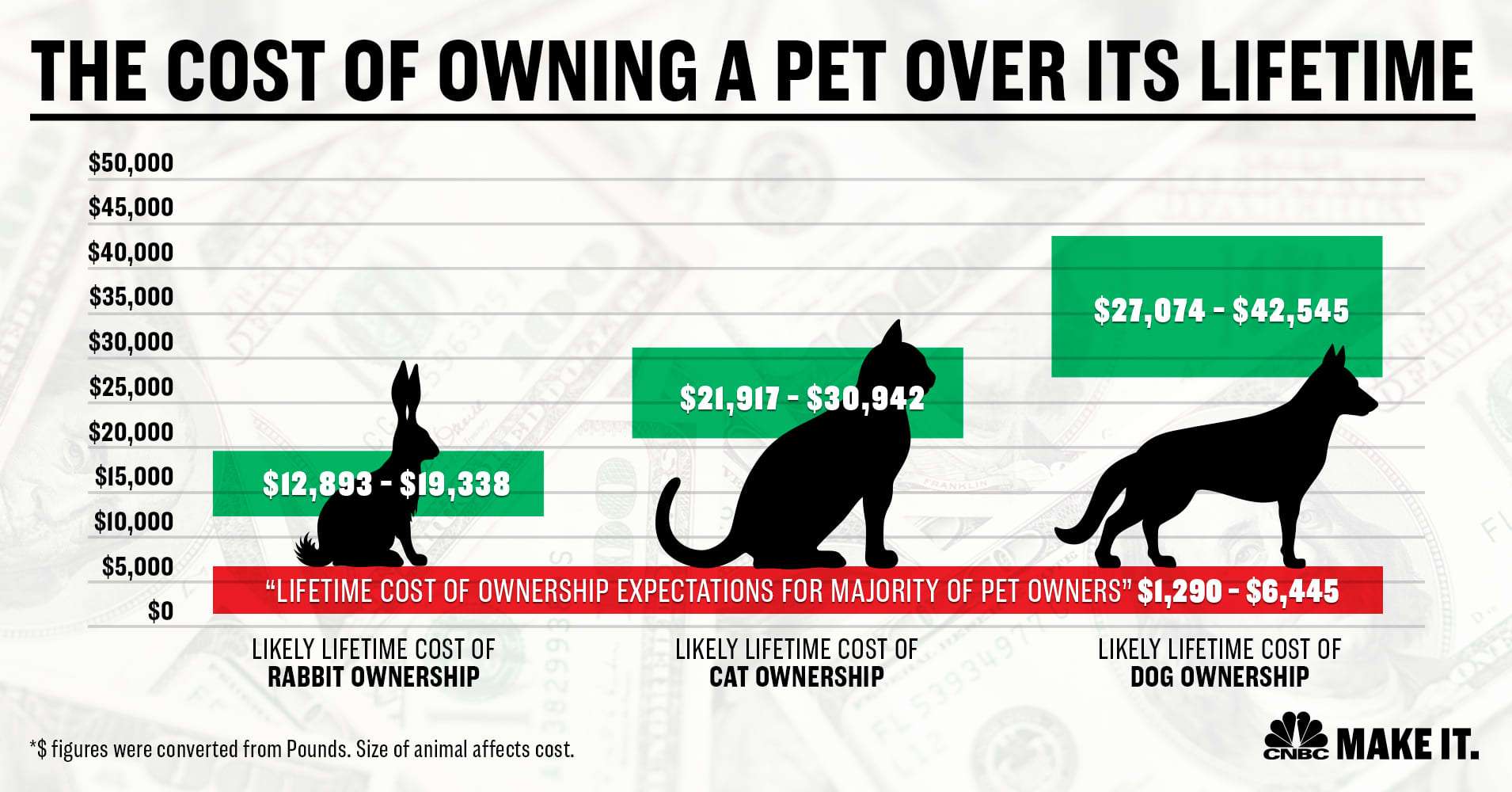
After you bring your new pet home from their first vet visit, make sure to follow any instructions or recommendations as given by your veterinarian. This may include flea/tick, heartworm, or dewormer medication regimens, a schedule for meals, and tips for care and training.
Remember to schedule your pets next visit for 3-4 weeks after the first one. Getting your kitten or puppy the proper preventative care can help them live a longer and healthier life.
Don’t Miss: How To Keep Stray Cats Off Outdoor Furniture
Found A Kitten How Much Am I Looking At In Vet Bills If I Want To Keep It
I’ve never had a cat before but my girlfriend has. I think I’d be a good pappy. The cat seems to like me. It’s really young. Couldn’t be more than a few months. Found it in a bush. How much do shots cost? The check up? Spaying or neutering? What am I looking at just to take the cat home and having all the things cats usually have?
I also have a new apartment with new furniture and am looking into declawing. I know it’s cruel and I’ve always been super against it . But my gf who is actually the cat person said both her cats were declawed and they were so happy blah blah blah. How much does a declawing cost ?
We are not declawing. That was a very vehement response but I really should have expected it. I’ve heard terrible things but never really understood it. Funny enough, one of the things my girlfriend said that her cats didn’t like to go outside, which now makes sense. And that they were still probably happy cats because they grew up together brother and sister
I appreciate all the suggestions and alternatives and people who actually answered the questions and even people who educated me on the declawing. I don’t appreciate people for some reason saying I can’t afford it/don’t deserve it and it’s better off for adoption. I just asked a question. Never did I say that I couldn’t afford a pet or the costs or that I wasn’t capable of caring for it. Just wondering if the first vet trip was going to cost $80 or $800.
What Vaccines Do Kittens Need As Required By State Law Rabies
Rabies is the other core vaccine your state will require your kitten to receive. Rabies is a fatal disease that causes fever, headache, excess salivation, muscle spasms, paralysis, and mental confusion. It is spread from many types of wild animals to domestic pets and can be spread to humans. Depending on your state laws and the veterinarian, your kitten can receive this vaccination at about 12 weeks old.
Read Also: Hocus Pocus Cats Name
Animal Hospital Visit In Toronto: Time For Your Kittens First Vet Visit
If you have adopted a new kitten, preparing for its basic care needs is essential. Making sure your pet is healthy is one of the most important aspects of being a pet owner. A thorough physical examination of your pet by a veterinarian is one of these aspects. This is not only good for your kittens health but also to prevent any communicable diseases. The best time to visit a vet is 8 weeks after its birth. During this time, it is important to build a relationship between your pet and the vet, as your cat should stay calm when going for routine check-ups.
During your kittens first vet visit, we can find out visible problems, highlight potential genetic issues, and also provide some basic information about caring for your new cat. You will also be informed about some of the important aspects of the kittens life such as:
Have fresh water always available for them as kittens drink more than adults do.
Make sure your kittens introduction to other pets and family is a positive experience. 2 to 9 weeks of age is the best time for kittens to socialize. Chasing laser pointers and cat scratching posts are some of the great ways to help your kitten socialize.
Remove things like string, tinsel, and electric cords around kittens as they might chew or swallow them.
Here are some of the things you should consider while preparing your kitten for its first vet visit:
Can Pet Insurance Help Me Pay For Vet Bills
Pet insurance can be a great way to protect yourself against high medical bills that can occur unexpectedly during the life of your cat, but many people ignore this option. It will usually cost between $25$35 per month to keep your cat covered. It can seem like a lot of money, but if your cat requires hospitalization, you will be glad you dont have to pay out of pocket. In many cases, not being financially capable of paying for treatment can result in the death of your pet.
When you have insurance, you will usually file a case with your company online and tell them about the vet visit, injuries, and costs incurred. The insurance company will then contact your vet and process your claim before sending you a reimbursement check.
Read Also: Cat Sleeping Pills For Travel
Is It Worth It To Get Pet Insurance
It is worth it for most pet parents to get pet insurance, especially for the peace of mind it brings. If your pet comes down with a serious condition, you want to be able to provide them the care they need. Treatment for some conditions can cost thousands of dollars, which most pet parents cant afford .
How Much Is A Vet Visit At Petsmart
PetSmart offers affordable and quality veterinarian services for dogs and cats. The price of a PetSmart vet visit is between $45 and $65 for dogs and cats.
One of the things you can do to save money on an emergency vet visit is to get pet insurance. That way, if your dog or cat gets sick or injured, youll only have to pay a small deductible. But be sure you read your policy carefully so you know exactly whats covered and what isnt. The last thing you want is for your pet insurance company to deny coverage for something that your regular vet would have covered.
You May Like: How Many Cat Years Per Human Year
Core Vaccinations What Basic Vaccines Kittens Need
Core vaccines are a kittens first vaccinations that protect against the most common and fatal diseases for cats and are recommended by all veterinarians.
Feline rhinotracheitis, feline calicivirus, and feline panleukopenia are what shots kittens need to get a healthy jump on life. Theyre often combined into one vaccine that can be administered as early as 6 weeks of age, with booster shots administered every 3-4 weeks until they reach 16 weeks of age. To avoid over vaccinating, most vets recommend starting this vaccine at 8 weeks of age, with boosters at 12 and 16 weeks.
Feline Rhinotracheitis
- Feline Rhinotracheitis is triggered by the common feline herpes virus. It can cause sneezing, runny nose, drooling, crusty eyes, lethargy, and weight loss. If left untreated, it can lead to dehydration, starvation, and eventually death.
Feline Calicivirus
- Calicivirus affects the respiratory system and may cause ulcers in the mouth. When it progresses, it can result in pneumonia. Young kittens and senior cats are most at risk.
Feline Panleukopenia
- Panleukopenia, or distemper, is spread from cat to cat and is so common that almost all cats will be exposed to it at some point in their life. Once a cat contracts this disease, they can die within 12 hours. Symptoms include vomiting, bloody diarrhea, and fever.
Which Vet Bills Do Pet Insurance Companies Cover

Many companies sell pet insurance to help cover the costs of some veterinarian services that your cat receives throughout their life. Most pet insurance companies cover a percentage of the bill for the emergency, accident, and sudden illness vet services in exchange for you paying them a monthly premium. For an extra monthly fee, some insurance companies will cover the costs of preventative care, including wellness exams, deworming, and flea treatments, minus a deductible.
Most companies offer reimbursement plans, which means that they will pay you back after you pay for the veterinarian services yourself. However, depending on the insurance company and the vet you are working with, you may be able to score a plan that does not require you to pay for services out of pocket at all.
You May Like: Uneven Pupils In Cats
How Much Is An Emergency Vet Visit
Fortunately, most veterinarian clinics have some time for walk-in vet services for emergencies, but how much does an emergency vet visit cost? This will vary based on the severity of the situation, but lets take a look at typical emergency vet costs:
Average Cost of Emergency Vet Care
These costs do not include the cost of treatment. These are the essential services needed to diagnose your pet and determine what kinds of treatment they need. On top of these emergency vet costs, youll need to pay for your pets treatment as needed.
Budgeting For Your Kitten’s First Year
Welcoming a new kitten into your home is an exciting experience. From the first moment they bounce around your living room with glee to the first time they look at you contentedly from their new window perch, it’s a true joy to get to witness all your kittens firsts.
But along with the fun of firsts is the daily responsibility of taking care of your cat throughout their life and the financial responsibility of ensuring they have everything they need to best support their overall health and wellness .
Setting up your kittens new home space before they arrive can help make introducing them to your home as low-stress as possible for you both. And preparing for the finances of the year ahead can help you feel ready to provide them with the proper care so you can focus on building your bond once they arrive home.
To get started, well look at the basic costs of your kittens first year.
While the information below provides a guide to what your kittens first year might cost, keep in mind that many things can affect the price of products and services, such as your geographic location, your kittens size and breed, their unique health needs and more. Most costs exist within a range, and you can determine just how much you want to spend on many products based on your budget and your kittens preferences.
Also Check: How To Check A Kittens Temperature
How Can I Tell If My Kitten Is Happy And Healthy
Happy and healthy kittens have fun and energetic behaviors. They’re curious and constantly playing. You don’t need a television anymore when you get a kitten, as they are so fun. It’s mostly about setting them up for correct boundaries in the household so that we can make sure that their behaviors are consistent with a happy life for everybody.
What Does An Emergency Vet Visit Cost
Some cats are accident-prone, so it will be no surprise if they have an emergency that requires immediate medical attention. If its during business hours, you shouldnt need to pay much extra for a visit unless the doctor is extremely busy. However, you will likely incur some additional expenses depending on the emergency.
Recommended Reading: Can A Hawk Pick Up A Cat
Everything You Need To Know About The Cost Of A Vet Visit
Nobody wants a surprise cost at a vet visit. Here are insights into whats covered at various vet visits, and how much each vet visit will cost.
Sarah Kaufman, a schoolteacher, and Sam Schreibman, a financial trader, living in Jersey City, N.J. recently purchased their miniature schnauzer puppy, Sophie, from a breeder in Rochester, N.Y. The couple saved money to be able to afford the dog and her accoutrements food, crate, playpen, toys, shampoo, probiotics, leash, harness, and, of course, veterinary bills. But when they discovered the costs of the puppys first vet visit they were surprised. The first round of shots was buried in the breeders costs, Kaufman says. But she and Schreibman paid $245 out of pocket for the second round. I wasnt expecting it to cost that much, and we still have a third round to go.
These costs are typical, says Sharon Albright, DVM, manager of communications and veterinary outreach for the American Kennel Club Canine Health Foundation , but they will vary across the United States based on regional and economic factors, and like everything else these costs will likely increase every year.
What Are The Right And Wrong Ways To Pick Up My Kitten
Oh, interesting question. I generally recommend picking up your kitten from the underneath side and maybe putting your hand up here to control the head a little bit. And scoop them underneath your arms. You can hold their little paws in the front, also. A football hold is probably the best way to do it.
You May Like: What Was The Name Of H.p. Lovecraft’s Cat
How Often Should My Cat Visit The Vet
Your kitten will need to visit the vet every month until at least four months old to get all of the required shots and vaccinations. You should consider spaying and neutering at six months, and your pet will need to visit again at one year for a checkup. After the age of one, your cat will be an adult and should see a doctor every six months to one year for another checkup until they are about seven. After seven, your cat is mature and should see a vet twice a year to detect any problems as early as possible.
Just Brought A New Kitten Home
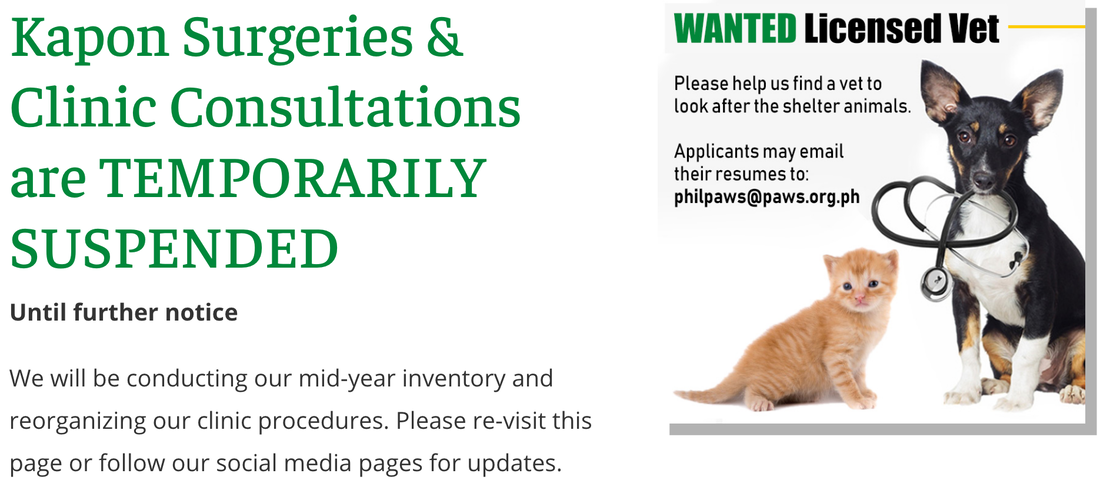
Greencross Vets are by your side when it comes to caring for your new kitten. Our passionate and dedicated team are here to help your kitten start off on the right paw. With state of the art equipment and facilities, each of the veterinary practices in our national network is able to provide your new kitten with whatever care they need, whenever they need it.
Your local Greencross Vets are so excited to meet your new kitten and to shower them with all the love and care they need to live a long and healthy life. Bring them in to meet the team today!
Recommended Reading: 1 Human Year To Cat Years
Turtle Shell Kittens For Sale
Kittens for sale for free, bengal kittens for sale mn, maine coon kittens for sale columbus ohio, how often do you feed newborn kittens, the cat in the hat invents prek stem robot games, most popular, how long are female cats in heat, how to stop cats from peeing on stuff, editor picks, what to do with cat when on vacation, popular posts, popular category.
- Must Read 350
- Popular 329
- Editor Picks 306
- Exclusive 306
- Stories 197
CatsWorldClub.com is a one-stop resource for everything you wanted to know about cats.
Contact us: [email protected]
© 2021 CatsWorldClub.com
- Terms and Conditions
- Privacy Policy

IMAGES
VIDEO
COMMENTS
During your kitten's first visit, the veterinarian will conduct a physical examination to include checking weight and vital signs (temperature, heart rate, and respiratory rate). The veterinarian will also examine the eyes, ears, mouth, skin, chest, abdomen, and joints for any signs of abnormalities.
Let's pounce right into the main event—the costs. Remember, these are ballpark figures to give you a rough idea. Costs can vary based on your location, the vet clinic, and your kitten's specific needs. Service. Estimated Cost ($) Initial Exam. 50 - 100. Vaccinations (FVRCP, Rabies, etc.) 20 - 40 each.
Taking your kitten's temperature: A normal rectal temperature of a cat is about 99 F to 102 F. If your kitten's temperature is too high or too low, it may be an indication of a problem. Palpating your kitten's abdomen: Your vet will gently feel your kitten's belly for anything abnormal.
As your kitten grows, their needs will evolve. Keeping them protected against diseases and pests is a continuous journey. Let's explore what costs you might encounter beyond the initial vet visit: Service. Cost Estimate. Booster Vaccinations. $20 - $30 each. Routine Check-ups. $50 - $100.
Average Vet Costs for the First Year of Owning a Dog or Cat. The APSCA estimates that the first year of owning a dog can cost as much as $2,000 or more, depending on the size of the animal.Meanwhile, the cost of owning a cat can cost up to $1,174 on average.. However, these costs are assuming you'll only need to bring your pet in for regular visits and won't have any unexpected charges on ...
Keep reading for a few tips to help you prepare for your companion's first trip to the veterinarian. 1. Invest in a Carrier. Cats are safest when transported in carriers, and it's well worth ...
Costs can vary based on location, the vet's office, and your cat's specific needs, but here's a general overview to give you an idea: Service Offered. Description. Estimated Cost. Initial Exam. A thorough check-up from whiskers to tail. $50 - $100. Vaccinations. Preventive shots for common diseases.
The first vet visit, as well as subsequent routine exams, can vary in price from vet to vet, cat to cat, and pet to pet. To get an accurate estimate of the cost of your kitten's first appointment, please contact your veterinary clinic directly. Questions To Ask Your Kitten's Veterinarian. Here is a list of questions you can ask your vet during ...
The average expense for kitten care ranges from as low as $600 to as much as $5,300. That means you can expect to budget $50 to $450 a month for that first year. Thereafter, cat parents spend around $300 to $3,000 each year or $25 to $250 a month . The cost of a cat over a lifetime can really add up. But for many of us, the joy of having a ...
In the waiting room, leave your cat in its basket, and put it on a raised surface like a chair. Try not to make any sudden movements, and take your cat out gently to put it on the examining table. Some cats feel reassured in their cage. If this is the case, take off the top part, so that the vet can reach the animal.
If you have a $250 deductible and 90% reimbursement level, your out-of-pocket cost for the incident would be $590 ($250 deductible + 10% of $3,400 = $590). Adding up premiums for three years and ...
Costs For Emergency Vet Services. Visiting the emergency animal hospital might cost you $500-$1,000 or more, depending on whether you have a cat or a small or large dog and what needs to be done. According to online emergency vet finder Emergency Vets USA, an exam and consultation costs $100-$150; bloodwork, $80-$200; X-rays, $150-$250 ...
A basic checkup can cost anywhere between $40 and $150, depending on where you live. You may need to see a veterinarian for reasons other than just a checkup, in which case, the cost of seeing the ...
Your new kitten should have their first vet visit within 24-48 hours after adoption. If you can go to the appointment before you take your kitten home, that's even better. Tests and vaccinations are important for your kitten's health. Many kittens will appear perfectly healthy but can harbor parasites or illnesses that could threaten your ...
A visit with your veterinarian will help ensure your kitten grows up happy and healthy. Here are some things you need to know about that first visit: 1. Scheduling the Vet's visit. You should schedule your kitten's first visit to the vet within 3-4 days of adoption. If you are adopting your kitten from a pet shelter, it is likely they ...
It could be due to bacteria, mites, yeast, or an unnoticed injury. A vet will examine the area, determine the cause, and recommend treatment, which may include a prescription. As long as the issue doesn't point to a more serious health condition, this visit will typically cost $120-$150.
A routine veterinary exam is a good time to discuss any concerns you may have about your pet's health and to get preventive treatment for common health issues. Procedure. Average Cost. Routine vet visit. $50-$250 3.
Here are a few examples of some extra procedures that some cats may require. Tooth Extraction: $50 to $130. Geriatric Screening: $200 to $250. Blood Tests for Allergies in addition to Standard Bloodwork: $300 to $400.
While there is no one-size-fits-all answer to the question, the average cost of vet visits for cats in the United States hovers around $50-$100 for a routine examination. More severe concerns and ...
The average cost of a routine veterinary checkup is $25 to $186, according to the pet financing experts at CareCredit . Emergency vet visit costs can range from $374 to $1,285. Connecticut has the ...
The average cost in the UK of a vet consultation stands at £53.82. There's massive variation nationwide. The cheapest price we found for a vet consultation was £26.28 at a practice in North Wales and the most expensive was £69 in North London. Some vets charge a little less for the second consultation for the same condition, but the ...
These include the type of procedure or service being performed, the location of the vet practice, and the overall health condition of the cat. In fact, the average vet visit cost for a cat in the ...
My average vet visit runs me about $80-$100, which is the base exam fee and a blood test. Sometimes more, sometimes less. Extensive senior-age panels and meds, for example, tends to be more like $230-$250. Basic checkups with no exam panels are more like $60.
The price of a PetSmart vet visit is between $45 and $65 for dogs and cats. One of the things you can do to save money on an emergency vet visit is to get pet insurance. That way, if your dog or cat gets sick or injured, youll only have to pay a small deductible.